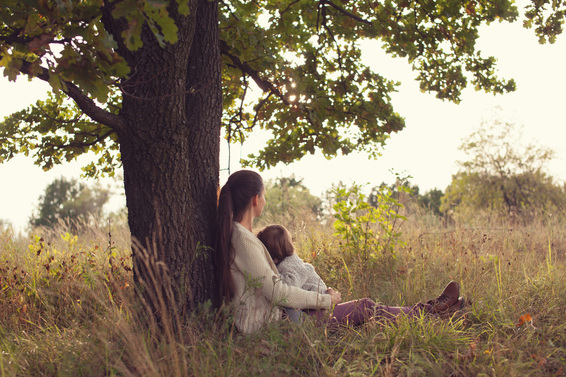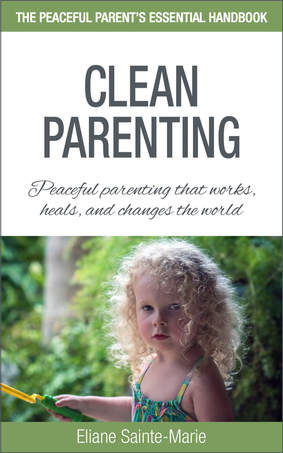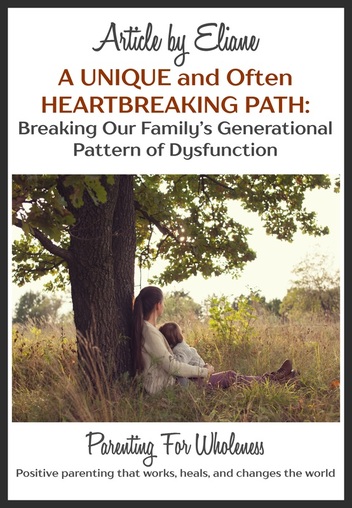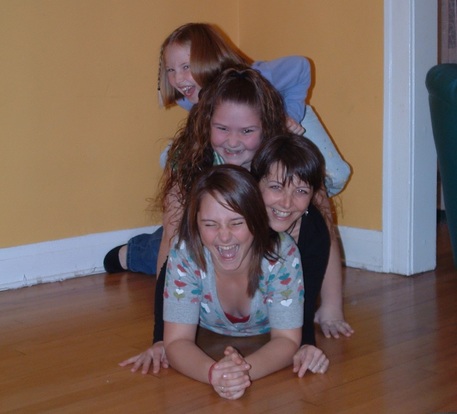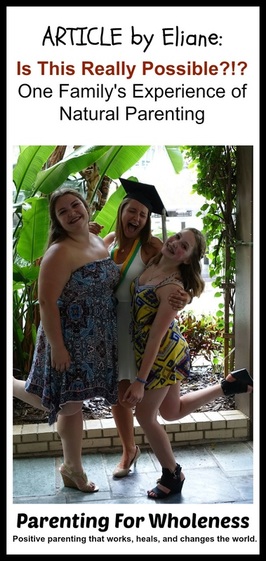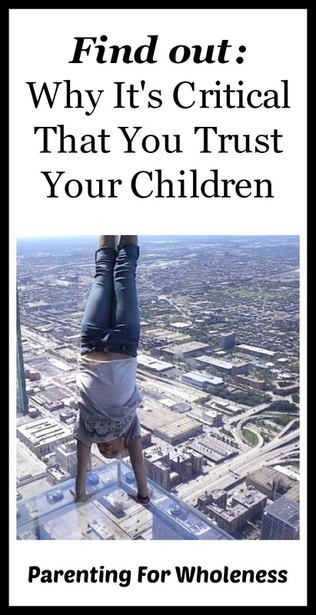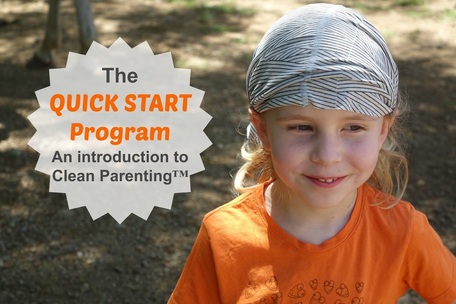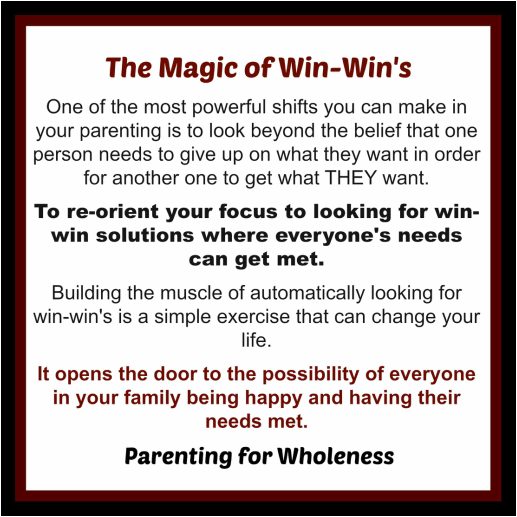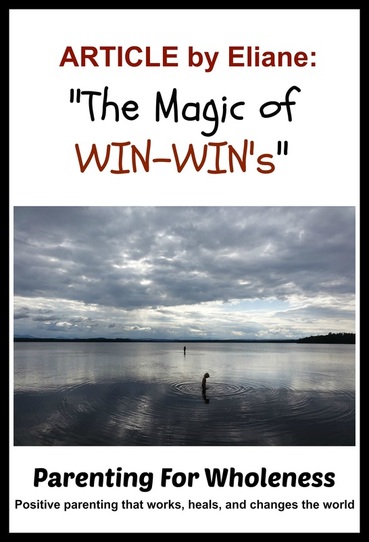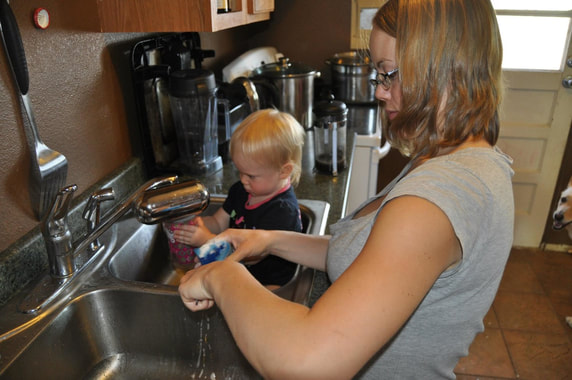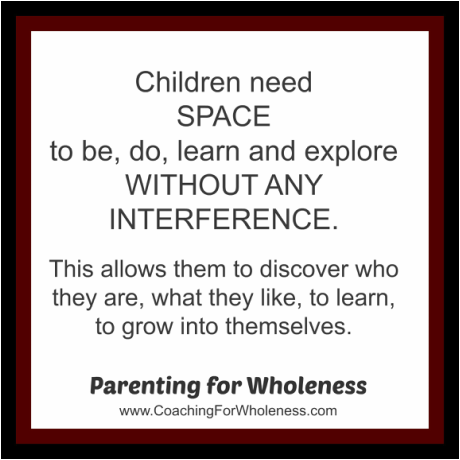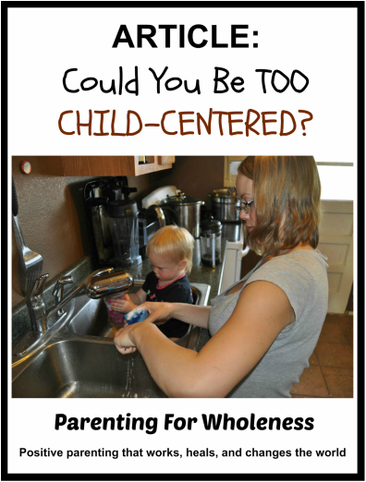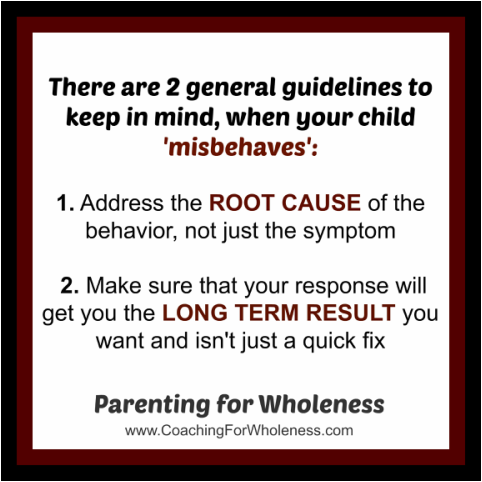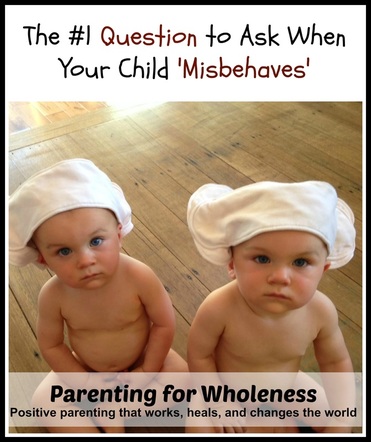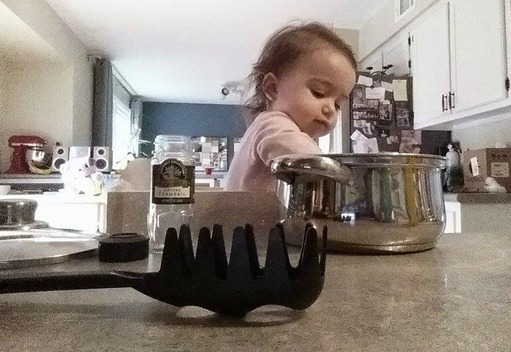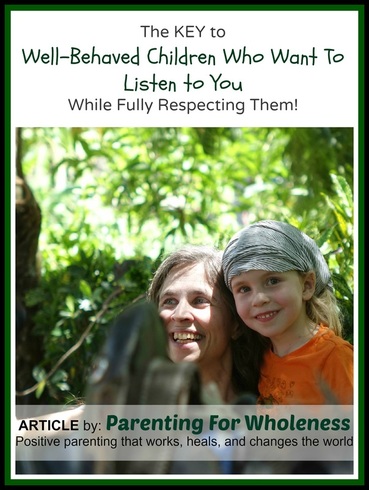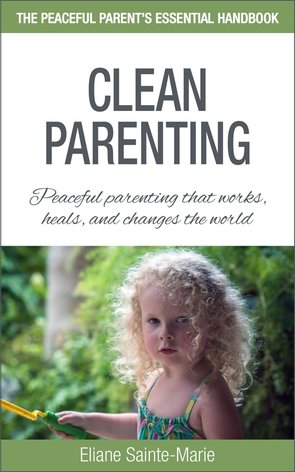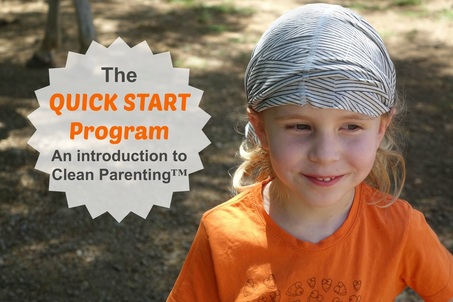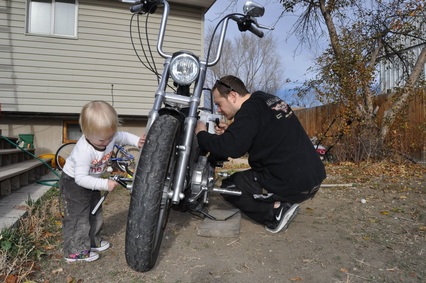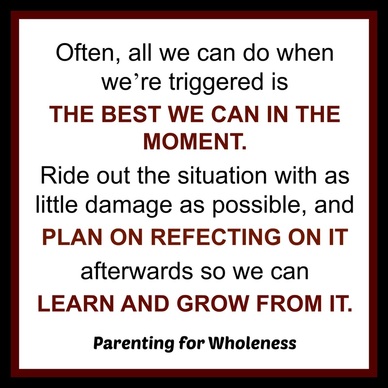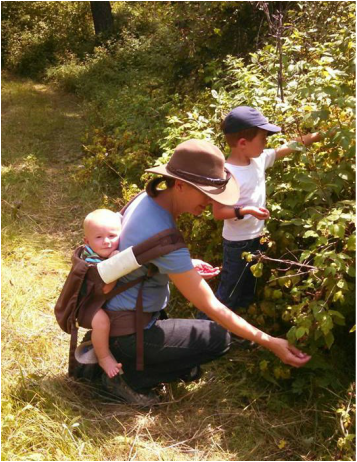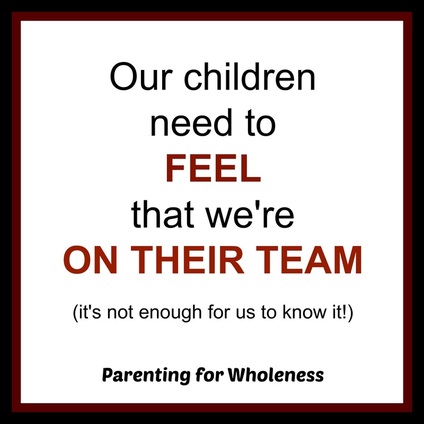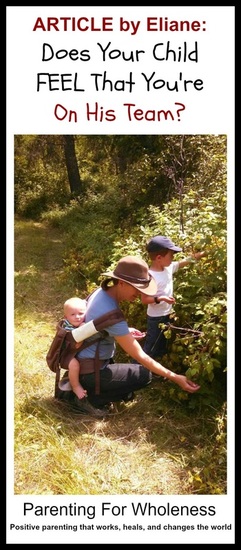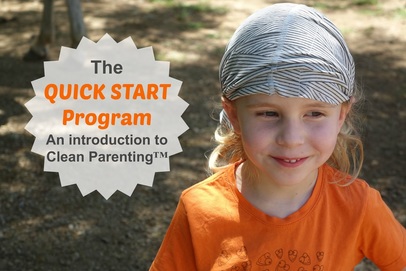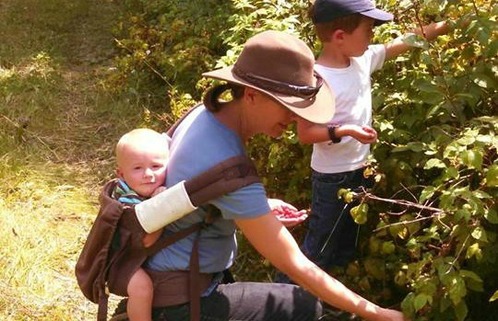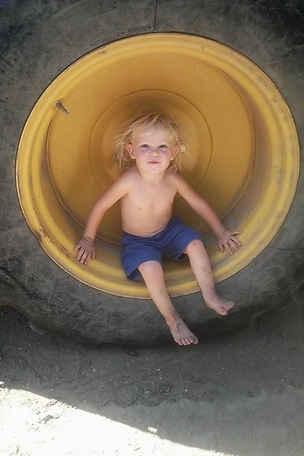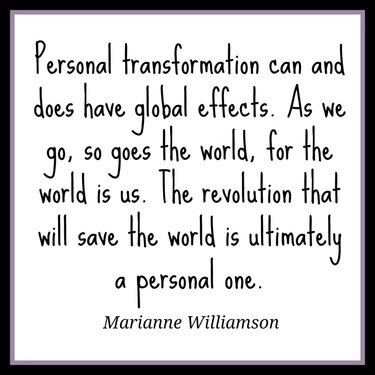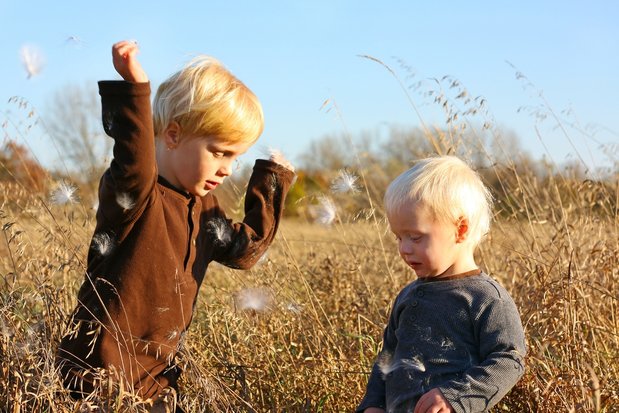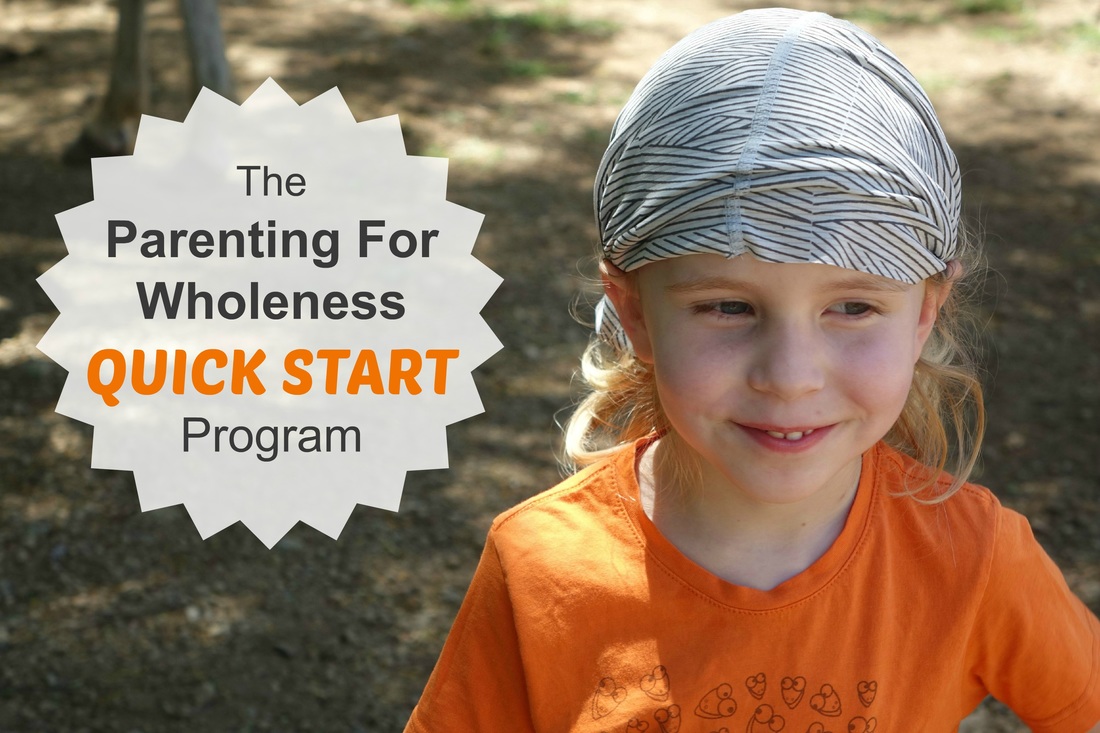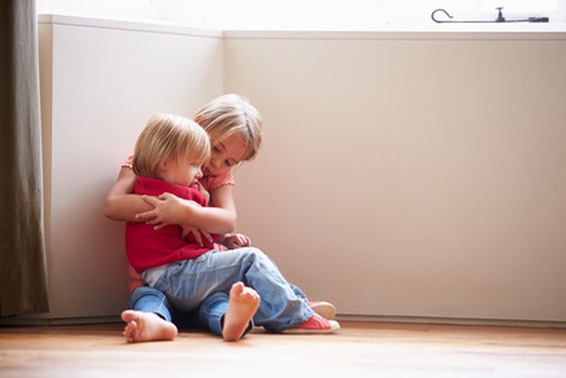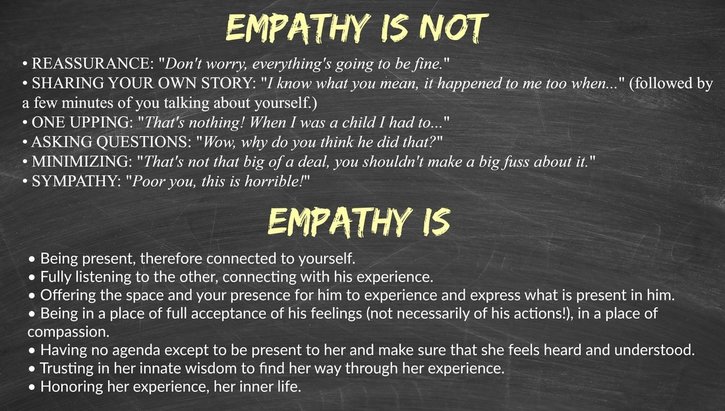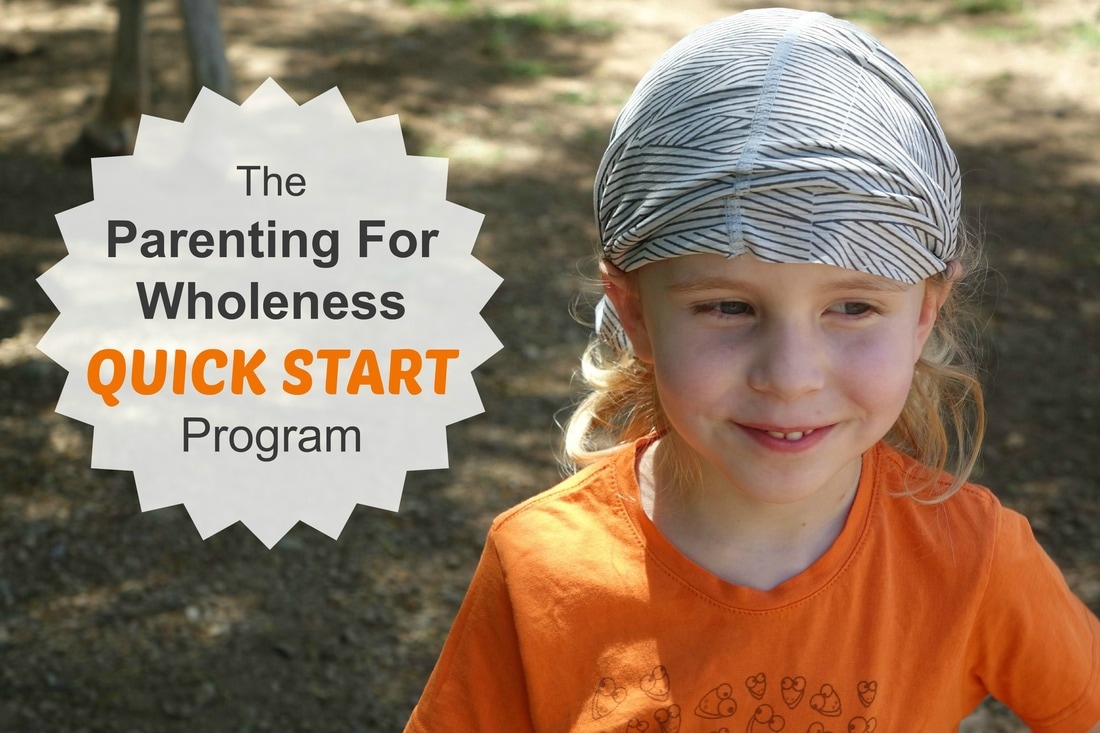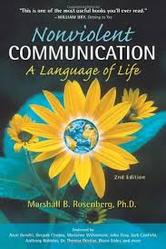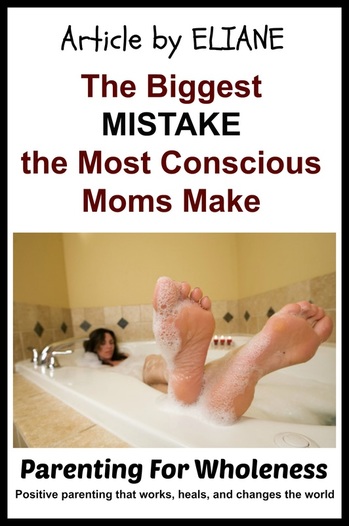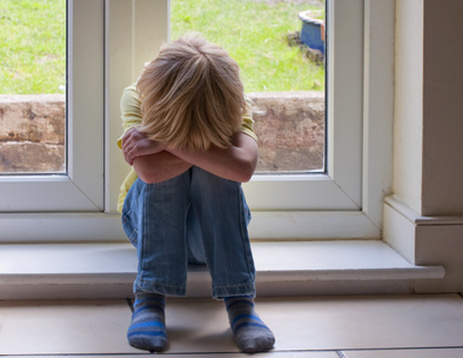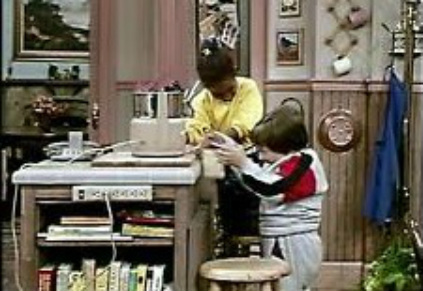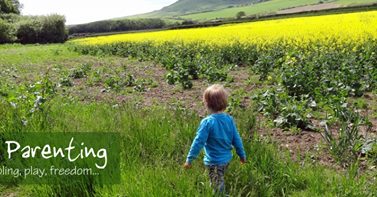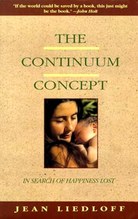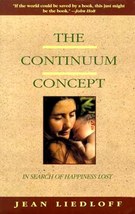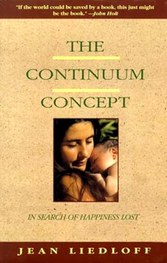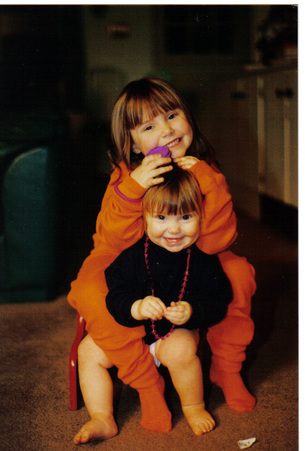A Unique and Often Heartbreaking Path: Breaking Our Family’s Generational Pattern of Dysfunction11/5/2015
While talking with Sarah this evening, I was hit by the heartbreak and loneliness that’s inherent in the path she’s chosen. Like a large number of the people who are drawn to my work, Sarah came to me because she shares the parenting intention I had raising my daughters: she is committed to obliterating the generational pattern of dysfunction in her family. She is committed to her daughter never having to experience even a smidgen of what she did as child. Yes, it can be done. My grown daughters are a living proof of it. They are free of all the addictions, low self-worth, dysfunctional relationships, etc, that plague all my siblings and I. And I know without a shadow of a doubt that Sarah’s daughter will be free of all that as well. And yes, it’s wonderful and incredibly rewarding to have been able to successfully break this long pattern that’s present in both my parents’ families. And I’m so so so grateful that all my daughters are free of the pain I still struggle to live through! But there are unique challenges for those of us who have committed ourselves to this Herculean task. Here are some of the things many of us have to live with, as our children grow up, especially in the early years of parenthood:
And here’s something I shared with an incredibly brave and committed young mom in my Clean Parenting™ Program today. A bit of insight from a mom who’s made it through parenting and done loads of emotional healing work. This may apply to you as well if you’re resonated with this article so far: “It is mind boggling to me what you've been able to do, given your history. You are incredibly strong, courageous and wise. I see in you something that a therapist has called in me a drive to wholeness. Even though we never received what we're trying to give our children, and even though we came from shit, a part of us for some reason knows what's possible. Has a vision or at least an inkling of what's whole and right, and we will not stop until we find it. It's not an easy journey. We fall, lose it, go into depression. And then we somehow find our strength, fight, make headway, and release some of the baggage. Something I accepted in the past 2 years is that this is just my life journey. I'll likely never have the smooth, peaceful and reliably productive life I long for. Because of my past and because I'm an HSP (highly sensitive person,) those ups and downs are par for the course for me. Accepting it and being compassionate to myself, and cutting myself lots of slack when those lows happen has removed some of the edge of the pain for me.
WANNA GIVE BACK? Did you get value from this article? If so I would be incredibly grateful if you could share this article with your friends on Facebook (below) or Pinterest. I would LOVE help spreading the word about my work to people who could be positively impacted by it! WANT SUPPORT? I offer several programs to support moms both in parenting in alignment with their values, and in healing the trauma from their childhood. If you're interested in working with me, email me at [email protected], and we'll schedule a free 30 minute Strategy Session. SUGGESTIONS ~ If you liked this article, you may also enjoy:
18 Comments
It can be very challenging to parent in a way that’s different from the mainstream, which I’m guessing you’re probably doing if you’re reading this article.
value, families who seem to ‘have it all together,’ or experts, you can find yourself asking if you’re actually ruining your children instead of doing what’s best for them.
It’s challenging because you’ve likely had no example of how you’re striving to parent and may not always know how to handle situations peacefully. It can be challenging, sometimes even overwhelming and exhausting, to spend a large part of each day focused on meeting little ones’ needs. I want to share my experience with you for three reasons: 1. I hope it will give you the reassurance that you are NOT ruining your children by parenting them in an alternative way. 2. I hope it will give you some inspiration that will fuel you to keep following your instincts and parenting in a natural way that’s attuned to your children. 3. I hope it will show you that the time and energy invested in meeting all your children's needs when they're little and becoming the parent you want to be are worth it beyond what you can even imagine! My 3 daughters and I are a living proof of it. MY EXPERIENCE: When my first daughter Cassandra was born, I went on a quest to find a parenting approach that would insure she would grow up feeling whole, loved, and knowing that she was intrinsically good.
I was obsessed.
It just was not an option for me to have her experience even a smidgen of what I lived and still struggle to heal from: growing up feeling unloved and believing I was deeply flawed. For the first 5 years of my parenting journey, all my attention and energy went into finding and integrating into my family an approach that felt 100% right. If anything felt even a little bit off, I’d keep searching and tweaking until it’d feel totally right. (My two main resources were all the friends I made through La Leche League and my parenting bible, The Continuum Concept.)
Some of the things I focused on doing with my 3 daughters were:
Once I felt solid in my parenting, five years after becoming a mother, I shifted my focus to personal growth and emotional healing, longing to have for myself what I was seeing in my daughters. I lost interest in studying and talking about parenting, pursuing other interests instead. I would say that from that point on, I didn’t really feel like I was parenting, but more like I was just living my life with my girls, if that makes any sense. Until Cassandra turned 18.
January 21st 2011 was a profound day for me, a huge milestone. I found myself reflecting a lot that day. Thinking about what it meant to be the parent of an adult. How our relationship would change. How I felt about sending her out into the world on her own, given that she’d picked a college 1200 miles away from home.
And I realized something: I HAD ABSOLUTELY NO CONCERNS ABOUT HER FUTURE!!! No concerns about her ability to find her way and her happiness in the world. No concerns about her ability to keep herself safe. And I was struck by the contrast with what I imagined most of her friends’ parents must be feeling as their children became adults and moved away from home. And then further struck to realize I felt equally unconcerned about the future of my two younger daughters! That day birthed what’s become one of my missions in life: to give as many parents as possible a vision of what’s possible with children. And information and support in achieving it. Now before moving forward and talking about all the positive things I experienced in my family, I want to stress that I am in NO WAY a perfect parent, nor are my children perfect! I could say a lot more about this, but this isn’t the topic of this article. You can read my full confession to that here. So here’s what I HAVE experienced in my family:
I hope you get that my motivation for sharing all this is in no way to make you feel bad if you’re not living the same thing I did nor to make myself seem better than you in any way. I JUST DESPERATELY WANT PARENTS TO KNOW THAT THIS IS POSSIBLE!!! I SO want to encourage you to pursue this parenting approach if it resonates with you! Yes, in many ways it’s a lot of work in the early years. And it takes incredible DETERMINATION to unlearn our conditioning and fully transition to a loving, instinctual and natural way of parenting! I am eternally grateful to the young mom I was 24 years ago, who fully committed herself to it!!! Because it’s paid off for me, my daughters, and all whom they’ll touch a million fold! If you believe in this approach with all your heart and want help so you can also experience with your children what I described with mine, click here to see if my Clean Parenting program is right for you. I offer this program 3 times a year and each group is limited to 8 participants. Check the program page for the date of the next group, a lot of testimonials, program information and to reserve your spot. I'd love to work with you if this program is right for you! ♥ Lots of love,
I was reflecting yesterday on something I feel REALLY STRONGLY about, which I want to share with you today.
Read or listen to the audio version.
her daughter take a sweater in case she got cold, in spite her daughter's assurance that she'd be okay.
Though this mom is also a very loving, attached and attuned parent, she is a lot more directive and protective with her daughter than I've been with my three. At some point in our conversation, whilst praising my parenting, work and the results I've had with my daughters, she said something that inspired this article. She said that she didn't allow her daughter to be as free as I allow mine, because she wasn't willing to experience the potential consequences of that. Her statement really stayed with me. I found myself pondering it a lot afterwards. And felt compelled to express my perspective. What I feel very strongly about and could have replied to her this wonderful mom is: "I'm not willing to experience the consequences of NOT trusting my daughters. Of making their decisions for them. Of having them rely on me to guide their decisions and monitor what they do." Giving them freedom to make their own decisions is what's allowed them to remain connected to their inner guidance, instead of them shifting their focus outward, to what others tell them. The only person who will always be with them, whom they can always count on is themselves. Therefore, I've seen it as my job as a parent to nurture and strengthen THAT relationship above any other. Trusting my daughters to make their own decisions while they still lived with me allowed them to develop their experience while I still had influence on them, and could still give them my opinion and feedback. By the time they move away from me at 18 (Cassandra has been in Florida for 3 years and Audrey is heading to New York City in the fall) they have been making all their decisions by themselves for a long time, therefore are very well equipped to make them. I've made a point of telling my daughters that the only person they can fully trust is themselves. Above even myself and their dad. That there are times (this mostly happened when they were little) when as parents we have to make decisions for them or that impact them which don't feel right to them. And that we're not necessarily making the best decision. That we are fallible. That it doesn't mean that because we're the ones making the decision we're right and they're wrong. I wanted to make sure not to skew their perception of what felt true and right to them, by telling them they were wrong. I just presented my perspective and opinion, taking responsibility for it and not making it 'the truth.' As Byron Katie says, no one can ever know what's right for another person's path. And no one else can ever fully know what's true for them. Why do I believe that the only person my daughters can fully trust is themselves? Because no one else ever has as much information about them and their specific situation as they do. No one else has access to their instincts and their inner guidance, which are the most reliable resources we have (when they're not covered up with crap from all our conditioning.) Our inner guidance is our connection to our drive towards wholeness, towards what we know is right and good, when we're not in some form of protective mode. It's our connection to presence, spirit, our higher self, God, or however we experience the source of life. It's our connection to massive amounts of information, of which we can only intellectually access a small fraction. I've encouraged my daughters to trust their own opinions and guidance in terms of who to trust, whose advice to listen to, which expert or more experienced person to turn to when they need help or additional information. I've encouraged them to be discerning when reading or listening to others and to never blindly trust what someone says. There's a whole people who was trained to blindly follow what the authority said. And look at the massacre that ensued! What if the Germans had grown up been encouraged to trust themselves...? I CAN trust my daughters to make the right choices for themselves because they've always been trusted to do so, therefore are experienced in it. And because they are honest - this is so key in making good decisions! I've encouraged their self honesty, as well their honesty with me, by never punishing them, trying to manipulate them to fulfill my own agenda, or making them experience any negative consequence for telling the truth. A self honest person tends to make good decisions because they're not hiding behind excuses and delusions.
she was sharing with me an experience that happened to her recently.
She had taken a road trip to my home town of Montreal with her best friend over spring break. One night, the girls met a young man in a comedy club and spent some time hanging out with him. He was nice, normal, smart, easy on the eyes and they thoroughly enjoyed his company. He invited them to meet up again the following night, but Audrey's friend declined. She was afraid that something negative might happen from hanging out with a stranger. But there was absolutely no doubt in my mind that it would have been fine. Why? Because Audrey felt completely comfortable with him. She would have KNOWN if something was off about him. And she would have made sure that they met in a setting that felt comfortable to her if she didn't. I completely trust her ability to size up people and know who she can trust and who she can't. And her level headedness in what she decides to engage in. Having been raised completely differently, her friend needs to depend on guidelines to feel safe. And made them miss out on an enjoyable experience because she was acting on something she's been told in the past instead of being free to evaluate the actual situation. What a bummer for Audrey! Now I'd like to switch to a completely different age group and share another story which relates to the topic of trusting children. A story that I told an acquaintance many years ago, before children were even on her mind, and which she told me recently is what she still remembers me by. Once, when she was 3, Gaby was standing on the kitchen counter, getting something in a cabinet. When she was done, she asked me if she could jump off. My reply to her was "I don't know, can you?" How could I possibly know what her body is able to do? I'M NOT IN IT! She turned the focus to herself and realized that she didn't feel comfortable doing so. And asked me if I'd take her down. If I had told her she couldn't, she would have learned to trust me instead of her own feeling of rightness.
WANNA GIVE BACK? Did you get value from this article? If so I would be incredibly grateful if you could share this article with your friends on Facebook (below) or Pinterest. I would LOVE help spreading the word about my work to people who could be positively impacted by it! SUGGESTIONS: If you liked this article, you may also enjoy:
Would you give just about anything for everyone in your family to be happy and get along? Read on for a strategy and an attitude that have the potential of making a HUGE difference in your life!
Building the muscle of automatically looking for win-win solutions is a simple exercise that can change your life. It opens the door to the possibility of everyone in your family being happy and having their needs met.
Having your focus on looking for win-win solutions will go a long way towards your children (and spouse!) feeling like you’re on their team, which is so core to having harmony with your children and them maintaining their sense of wholeness. ('Being on the same team' is one of the four pillars of Clean Parenting™. Click here for a report that describes all four pillars.) It will ensure that you consider your children in how you approach the situation, AS WELL AS YOURSELF! Unfortunately in our society, the vast majority of parents live most of their lives either considering the children’s needs and preferences at the exclusion of the parents’, or the other way around. THE ONLY WAY TO HAVE A TRULY HAPPY FAMILY LIFE IS TO HAVE EVERYONE'S NEEDS TAKEN INTO ACCOUNT. Re-orienting your thinking in the way I’m describing here is a very simple and effective way to do so. A lovely side benefit you’ll find when that becomes your general orientation, is that your children will be much more likely to accept your “no's.” This will happen because they’ll really KNOW, in their gut, that you’re on their side and rooting for what they want. They’ll therefore easily trust that there’s a good reason for your no’s. Here are several examples of looking for win-win’s:
Many times, parents come to me saying something like:
“Eliane, I'm not sure what to do because when my child asks me for a snack as I'm cooking dinner. I don't want to say 'no' and have him go hungry, but at the same time I'm putting effort into making a dinner he'll like and I want him to still be hungry for it! What should I do?" If you’ve worked with me already, you know how I respond, right? Because it’s what I answer probably 90 percent of the time! “How about you tell HIM exactly what you just told me, instead of telling me?” This truly can work like magic. I urge you to try it! If your child truly feels that you’re on her team, when you speak to her in this way, she’ll most likely be open to hearing you and want to come up with something that works for you as well. Enlisting her in coming up with the "action plan," assuming that you genuinely want her to be happy with it (and this is key!) will AUTOMATICALLY make her feel that you’re on her team. It’s very possible that she’ll come up with an idea you may not even have thought of! I may not know your child, but I’m guessing that she’s creative and impresses you regularly with her ideas. Take advantage of that and make it work for your family! So in the next few days, notice what you tell your friends and spouse relative to a challenge you're having with your child. And see if you could just talk to your child about it directly instead of to a third party! Another benefit of talking to your child about the dilemma is that it forces you to put it into words. And as you've likely also experienced, often times all that's needed to find a solution is to clearly verbalize the issue. How about applying this with babies and not yet verbal toddlers? And if your child is too young to work something out with you, I suggest that you STILL tell him or say out loud, in the midst of the situation, what your dilemma is. This will help for three reasons: A. Depending on your child’s age, she may understand some of it. Children tend to understand MUCH MORE than what we think they do! B. Even if she doesn’t understand the words, she’ll sense and understand the intention of what you’re saying. C. It’s a way of training yourself to look for win/win situations, and to think outside of the box. It’s a way to reset your (most likely) negative conditioning to an approach that is more conducive to having harmony in your family and meeting everyone’s needs. If this isn’t already how you handle situations in your family, I really hope that you’ll try it and would love to hear how it works for you once you do! And if this article and the Clean Parenting™ approach speak to you, and you’d like support in integrating it in your family life, check out my QUICK START PROGRAM! This article is part of Module 8’s assignment, in which you’re asked to ponder this concept, work on applying it to each of the items on the list of challenging situations you created at the beginning of the program, and get to exchange about it with all the other committed parents in the Facebook group who are also working through the program alongside you.
WANNA GIVE BACK? Did you get value from this article? If so I would be incredibly grateful if you could share this article with your friends on Facebook (below) or Pinterest. I would LOVE help spreading the word about my work to people who could be positively impacted by it!
Are you surprised at how much energy and attention your child requires? Do you sometimes feel exhausted by it?
Are you puzzled at how demanding she is even though you strive so hard to meet all her needs? That she sometimes doesn’t even seem like a happy child in spite of all you’re doing? Are you discouraged that even though you model respectful behavior, your child is not respectful, compassionate and at times even pleasant to be around? This a common issue I notice in many of the parents who come to me. They are committed peaceful parents. They’ve put a lot of time and energy in learning how to be the best possible parents to their children. Many are highly motivated because they don’t want their children to experience the painful childhood they themselves experienced. Yet they don’t have the child the peaceful parenting books promised. And they’re tired of bending over backwards trying to please their children. They believe somehow that parenting doesn’t have to be that hard, yet they don’t know how to get there. Does that sound like you too? Then it’s very possible that the problem is you’re too child centered. That in an attempt to make sure that your children’s needs are met, you’re too focused on them instead of being the grounded leader they need and giving them the space to have their own life experience. In order for our children to feel secure, it’s very important that they feel we are in charge, we know what we’re doing, that we have things under control, that they can rely on us. (For a full discussion on this important topic, read my article The Key to Well-Behaved Children Who Listen to You, While Fully Respecting Them or listen to my interview Why Leadership Is the Missing Link in Conscious Parenting.) If we turn to them for guidance on how to live our lives, spend of a lot of our days focused on them, looking for their input on most things, they will not have the sense that we’re in charge. They then won’t be able to relax into the safety of knowing that someone has things under control. They need that knowing to be able to and free to focus on their own lives, their own experiences. It’s important that we create lives that feel good to us, in which we focus on our own tasks and interests, and our children are on the periphery. What we do should be compatible with our children, but our lives are not about them and their activities. Having our children be our entertainment causes a shift from their intrinsic motivation and their own connection to their activities, to an extrinsic motivation where they aim to please us and get validation from us. It cuts off their self-connection. It leads to children who want a lot of attention, feedback and approval on whatever they do, who can’t just appreciate what they enjoy doing for its own sake but are dependent on the validation of another to enjoy it. This is often the cause of children who feel very demanding. This is something that happened a lot with my children when they were young, when we visited my family in Montreal, for a few weeks at a time. We’d just hang out in the family room a lot and everybody would comment and “ooh” and “ah” at everything my children did. They would as a result of it often be a lot more demanding of attention when we got back home, and it would take some adjustment for them to come back to just doing things of their own motivation. It’s also very important for children to have space to be, do, learn and explore without any interference. This allows them to discover who they are, what they like, to learn, to grow into themselves. Showing your children more benign neglect could be a very beneficial thing to their sense of self, and free you up to have more time and space for yourself! So how do you apply this in your life when you’re often alone at home with them, and that there are limited ways to meet their social needs? Please know that I’m not saying that you should never play with children or engage in their activities. However, contrary to popular opinion, it is definitely NOT necessary to play with your children to meet their needs and build a strong connection with them. Because of the artificial set-up of most of our families, our children are more reliant on us for their social needs than if we lived in ideal tribal or community situations. It’s perfectly appropriate for us to do things with them, as long as we genuinely enjoy them, but those things need to comprise just one part of our overall enjoyable lives that include a lot of our own interests. I played countless games of Skip-bo, Rummikub, cards, as well as read books and did puzzles with my girls. As long as I enjoyed it and didn't make it my job. What I saw as my job was to ensure that their social needs were met. While many toddlers are happy being home alone with mom and maybe some siblings, some require more social engagement in order to have their social needs met. And most children 4 and older require regular time with children and adults other than their parents and primary caretakers to feel socially satisfied. One guideline I have to determine if you're being child-centered or not is to check your energy when engaging with your child. · Do you feel grounded in yourself or is your energy with your child? · Are you being condescending and cutesy with your child or engaging from a clean place? · Are you resenting giving him attention or are you genuinely interested or eager to interact with him? Because this is a feeling thing, it's a bit tricky to describe, so I encourage you to just notice where your energy is when playing with your children. HOW CHILD-CENTEREDNESS FEELS Now I want to give you an experience of what child-centeredness feels like. Have you ever been in a co-dependent relationship or seen someone close to you in one? This is what child-centeredness is like. Read the following paragraph. Then close your eyes to feel into what I describe. Imagine you’re in a romantic partnership with someone who absolutely adores you and/or is afraid of losing you. He makes his whole life about you and is every moment focused on how what he does impacts you. He asks your advice and permission on everything. He doesn’t want to do anything without including you. He's afraid of hurting you. He makes sure that any action he takes will not impact you negatively in any way. Imagine what this would feel like, beyond the initial enjoyment of having someone’s full attention. Imagine living this way for years.... Once you’ve felt into it, now imagine the following: You’re married to someone with whom you have a great connection, and you share a deep love for each other. Your spouse is a happy person who isn’t reliant on you for happiness. He also sees you as a whole and competent person. Though he loves spending time with you, participating in shared interests, he’s also happy in his own work, hobbies and other relationships. He deeply revels in your company, not because he needs it, but because of the quality of your connection. If you’re not available to spend time with him because of other activities you’re involved in, he happily finds something else to do. You share a home and a life but are still two independent people. How does that feel? Which of those do you most resembles what you have with your children? If you have elements of co-dependency, what’s something you could do to move towards a healthier relationship with them? FAMILY-CENTEREDNESS What I propose, instead of being child-centered, is to be what I call ‘family-centeredness.’ The goal of family-centeredness is to find a way of living, and activities that meet everyone’s needs as much as possible. To create a life that everyone enjoys, that has room for everyone’s interests. Where there’s room for each person’s individuality and wholeness within the context of the loving and supportive family. Of course, with babies and young children who are still dependent on the parents, some activities may be unavailable to parents for a few years. But it’s still important to create a life for yourself that you enjoy as well, and very possible even while meeting your children’s needs. You deserve to be happy and have your needs met too. ♥ With much love,
P.S.: For more on this topic, make sure to read the comment section of this article. I've shared some additional ideas and resources, and asked 2 moms who completed my Clean Parenting™ program and mastered this principe to share here their advice after seeing them post it in a Facebook group.
FOR HELP PARENTING in a way that meets your children's needs AND is not child-centered, click the button below to request my FREE report: The Almost Magical Formula for surprising EASE and HARMONY in your family while fully honoring your children’s spirits. For support in learning to parent in a way that fully honors yourself as well as your children, check out my Clean Parenting™ Program.
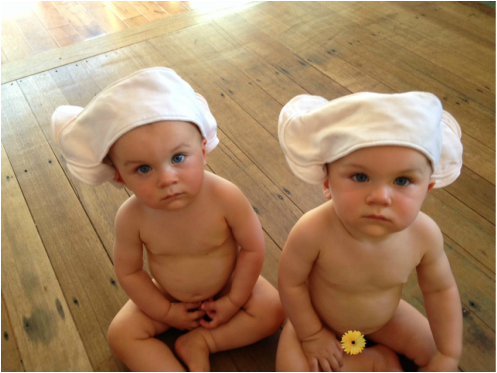 Photo courtesy of Estelle Gaffric - To make sure the US doesn't censor it, my creative daughter Gaby edited it. :-) Photo courtesy of Estelle Gaffric - To make sure the US doesn't censor it, my creative daughter Gaby edited it. :-)
So there’s one premise we need to be clear on before I divulge that tip. And it’s that our children are innately good.
I know you believe this, otherwise you wouldn’t be here. But it’s one thing to believe it intellectually, and it’s another to actually be able to parent from it, moment by moment. What I’m going to talk about here guides you to parent from that place. (For a thorough discussion on believing that our children are innately good AND cooperative, request my report The Almost Magical Formula for Surprising Ease and Harmony in Your Family While Fully Honoring Your Children’s Spirits. It’s the first element of the formula.) The thing is that once you truly know that your child’s nature is good, know it in your bones, when she ‘misbehaves,’ it will be obvious that it comes from a place of something being ‘off.’ So grounded in this knowing, the question you’ll ask yourself is: "WHY is he behaving this way?" Not in a "Why in the hell is he doing this?" way, but with genuine curiosity, wanting to really understand what’s going on inside your beloved child. And then you’ll be able to address THAT. The REAL cause of the ‘misbehavior’ or the situation. You’ll be able to address the underlying issue instead of just controlling the behavior. Like healing the actual cause of an illness instead of just taking a pill to mask the symptoms. You’re going to understand that there’s a valid reason she's acting that way and you’ll start the detective work to uncover it. Here are 10 questions you can ask yourself to help you figure out WHY your child is acting the way he is: ✔ What information does he need to shift his behavior of his own choice? “Oh honey, if you pick those flowers we won’t have them to keep our yard beautiful anymore.” “When you pull on the dog’s tail, it hurts him, just like it would hurt you if I was pulling on your ear.” ✔ Are my expectations of him realistic in this situation? Are you expecting an 18 month old to want to sit on a chair for 30 minutes while having dinner, when his whole drive at that age is towards motor development? Are you expecting a 4 year old to let you talk uninterrupted when he doesn’t have something engrossing to do or hasn’t had much connection time with you recently? ✔ Does she have a need that’s not being met and needs to be attended to? Is she tired or hungry, and in need of food or sleep, in order to no longer feel depleted and be able to cope with life? Has he been cooped up in an apartment for two days and is in dire need of open spaces and loud running around? Does he have food sensitivities yet has been eating triggering foods? ✔ Does he have an emotion or experience that needs to be processed? Did he throw down his cup because he’s feeling frustrated? Did he yell at you because he’s feeling overwhelmed by all he has to do to get ready for school? Is she acting out because she feels displaced by his new sibling? ✔ Is he responding to the way people around him are acting or feeling? Have you been feeling rushed and barking out directions at him instead of connecting with him while making your requests? Have you and your spouse been arguing and he’s feeling uncomfortable? Have you been especially busy and preoccupied recently? ✔ How can I respond so he truly FEELS that I'm on his team and not an adversary out to talk him out of what he wants or feels? Using a kind voice and helping him come up with a positive way to deal with the situations are examples of responses that will make him feel that you’re on his team. ✔ How can I state what's appropriate in this situation while honoring his feelings and needs? “I know you get really angry when your little sister breaks your Lego project, but you need to tell her with your words that you’re angry, not by hitting her.” “I know it’s really hard not to pick those pretty flowers. We can pick some of those pretty leaves if you want, or we can go throw the basketball together." ✔ Am I willing to set a clear limit and find a way to positively and consistently enforce it so he takes me seriously in the future? For children (especially young children) to learn what they can and can’t do, it needs to be clear and consistently enforced. Generally if you let them do something one time, or occasionally when you’re too tired to enforce the limit and help them find something else to do, they’ll keep doing it. And they'll learn not to believe what you tell them.
(For a convenient CHECKLIST of those questions, which you can post on your fridge for easy access when you really need them, click the button below.) So there are really two general guidelines that I recommend you always keep in mind, when your child ‘misbehaves’: 1. Address the cause of the behavior instead of the symptom, otherwise you’re really not resolving anything. 2. Make sure that your response will get you the long term result you want and isn’t just a convenient quick fix which will end up backfiring in the long run. WANNA GIVE BACK? Did you get value from this article? If so I would be incredibly grateful if you could share this article with your friends on Facebook (below) or Pinterest. I would LOVE help spreading the word about my work to people who could be positively impacted by it! FOR HELP ON PARENTING from a place of knowing that you're children are innately good, request my FREE report: The Almost Magical Formula for surprising EASE and HARMONY in your family while fully honoring your children’s spirits.
Do you ever feel you have to make a choice between parenting peacefully and having well-behaved children who listen to you?
Or having a sense of order in your home?
Click PLAY to listen to the audio version of this article.
Or even though you don’t believe in coercive and authoritarian parenting, do you sometimes just wish you did so your children would do what you say? Even obey you?
Well I’m here to tell you that you don’t have to choose. It IS possible to have well-behaved children who listen to you while fully honoring and respecting them. What I’m talking about here is not obedient children who blindly follow any directions but children who trust you and know in their bones that you’re on their team, and therefore WANT to listen to you. One thing I've sadly found through working with many peaceful, attachment, unschooling and Continuum Concept families, is that many of them end up giving up on the idea of effectiveness in their parenting, because they don’t believe it can happen in a way that’s respectful of their beloved children. They don't want to squash their spirits. They don’t want to control them. They don't want to be authoritarian. They don't want to do to their children what was done to them when they were children. Sometimes chaos ends up reigning in those families. It's challenging to make anything happen. And eventually the parents snap and respond to their children in ways they promised themselves they'd never do. Does this ever happen to you? I'm here to tell you that you don't have to give up on effectiveness to fully respect your children and to honor their spirits! On the contrary, grounding yourself in Clean Parenting, which is highly effective because it taps into children's innate desire to cooperate and learn from their elders, is actually doing them a favor and meeting needs which aren't when we're afraid of offering clear, needed and appropriate guidance.
How would that feel?
And now imagine that you have a local guide who is there to help you acclimate. Would you do whatever you want, or would you check with that trusted person to find out what's appropriate? Would that person be controlling you or helping you adapt to the culture? As far as that guide goes, would you prefer someone who is afraid to give you information, who is apologetic and who avoids giving you directions as much as possible? Or would you want someone who knows you well, knows what you already know and what you haven’t encountered yet, and matter-of-factly presents you with the information you need when you need it? I’m hoping you got a clear sense of what I mean by being a benevolent leader by doing this reflection. Being a leader as a parent is tapping into the natural order of things, from an evolutionary perspective, in which children look to their elders to learn about the world and for guidance on how to conduct themselves. In our society parents tend to either be: 1) AUTHORITARIAN, in a way that doesn’t really respect children and meet their needs, and damages their sense of self OR 2) PERMISSIVE, because they really want to honor and trust their children and not do to them what their own parents did. Yet those permissive parents often find themselves wavering between the two approaches because they can’t find something that works and is in alignment with their values. The thing is that young children don't have the experience nor the big picture in mind to make decisions, in many situations. Therefore it is normal and healthy for us to make those decisions for them, for our family. This organically and quickly shifts as they get older and grow in their ability to make decisions. At the same time it’s critically important that we guide them in a way that is totally respectful, nurtures their sense of self, and doesn’t in any way damage our relationship with them. Here’s what it looks like:
Watch this video of my 27 year old daughter demonstrating how she used Clear Benevolent Leadership to a boy in one of her coaches' gymnastics classes (as well as to see what a child parented in the way I teach looks like as an adult - proud mama moment here. ♥)
What I’m describing here may seem utopic, but I guarantee that it’s possible. It is the trickiest things I teach (which I’m eternally grateful to Jean Liedloff, author of The Continuum Concept for teaching me!) because it’s not something most of us have had any modeling of. But when it clicks into place with my clients is when I suddenly hear how totally easy their life also gets! It does take work to integrate, but I promise that once your leadership is established, your life will be so much easier! It might be even straight up easy, as mine was, so it’s well worth the time and focus to achieve it. And it is well worth doing any inner work you need to do around this to clear what’s in your way of embodying it. In order for this firm, clear and benevolent leadership to work, the following HAS to be present:
One key thing for your children to want to cooperate with you is that they have to feel that you’re on their team. In fact a lovely mom told me something today on a Clean Parenting group call that I want to share with you. She said she knows right away if she's on her daughter's team. One way she knows is that she can really FEEL it within herself. But the other way, which relates to today's article, is that her daughter complies right away when her mom feels on her team, and invariably resists her when she's not. I thought it was so cool that she saw such a clear and immediate correlation! So here’s the one almost universal mistake parents make which automatically makes their children feel like they’re not on their team: they try to talk them out of what they’re feeling or what they want. They try to convince their children to think, feel and want what THEY want them to. Check out for yourself what this feels like: Imagine you’re having one of THOSE days (you know just the one I’m talking about, right?) At that moment your mom (or friend) calls, and you vent to her: “I can’t do this parenting thing anymore, it’s just too hard!! I need a two week vacation away from them!" And she responds: "Come on, you don't want to be away from them. You know you love being home with them! You'd miss them like crazy. You have such a wonderful life!" How would it make you feel in that moment? How connected would you feel to your mom (or friend)? Would you feel she’s with you or against you? And how open would you feel to her at that moment, if she asked you for a favor? Now let’s bring it back to your children. Here are some examples of common ways parents deny their children’s experience: 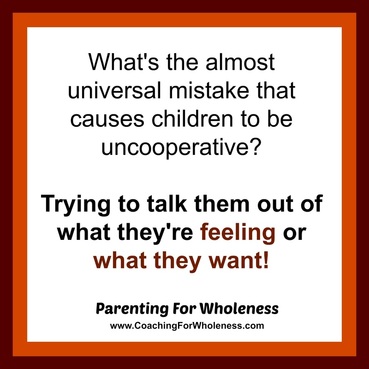
I want to acknowledge here that I KNOW you likely had the best of intentions when you did! But this unfortunately only backfires on you. Here’s what you can do instead, which will make your child feel that you’re on his team, and will allow him to feel heard and that his inner experience matters:
You’ll be amazed at how differently your child responds to you if he feels that you’re on his team, and that how he feels matters to you. He’ll be much more open to hearing what you have to say, and to coming up with a solution you’re both happy with. It will make him open up to being on YOUR team. And it will give you both an opportunity to explore any painful and confusing feelings he’s experiencing which led him to say things you would have preferred he didn’t, such as him hating his sister or wanting to hit his friend. For help on parenting from a place of being on the same team and using empathy to connect with your child and help him process negative emotions, request my FREE report: The Almost Magical Formula for surprising EASE and HARMONY in your family while fully honoring your children’s spirits. SUGGESTIONS: If you liked this article, you'll likely also enjoy:
As you may know, one thing I'm incredibly passionate about, and feel is part of my mission in life, is sharing the sometimes controversial message that parenting CAN be easy! And I wish I could inject every parent who in any way also believes it is possible (or even just wants to believe it!) with the commitment to attain it.  My crazy girls at Cassandra's college graduation My crazy girls at Cassandra's college graduation
This belief and my commitment to attaining it are what allowed me to eventually reach the place of ease I speak of in my family. They are also what supported me in reaching my parenting goal of bringing to adulthood three daughters whose spirits are mostly intact and are incredibly successful in the ways that most matter to them.
I want to share with you today the journey of a lovely mom who participated in my Clean Parenting™ Program. I'd like you to read her experience because it's a concrete example of what CAN happen when parents fully commit to 'cleaning up' their parenting. And it also shows how quickly the transformation can happen. And yes, in a way this post is a promotion for my program but I almost don't care (still working on this!) if it comes off as pushy because this program gets results! (You can read many more testimonials from parents who have participated in it on the program page.) And I want as many families and children as possible to get to experience those results!!! I want parents to enjoy being parents, to have ease and harmony in their interactions with their children. I want for all children to grow up whole, unencumbered by the baggage (which I personally still struggle with daily and fuels me to keep doing this work) that unfortunately gets passed on when we parent less than 'cleanly.' I'm hoping this story may inspire you to take the step of fully committing yourself to getting to ease and harmony in your family, whether through this program or any other path that works for you. What are your thoughts after reading this? Is this something that you're not experiencing in your family but also long for? Wonder if it's possible for you? It very well might be. Is it easy to get there? No. THAT can take a lot of work and effort. And unwavering commitment. But it IS possible. It was for me and I see more and more parents experiencing it as well as they learn to put into practice the fundamental principles that I work on with them in my program. If you're wondering if the program would work for you, you can schedule a free chat with me through the sign-up form on the program page. I offer this program 3 times a year and each group is limited to 10 participants. Check the program page for the date of the next group, a lot of testimonials, program information and to reserve your spot.
If you want to learn more about what leads to such ease in parenting, request my FREE report,
The Almost Magical Formula For Surprising EASE and HARMONY in Your Family While Fully Honoring Your Children’s Spirits. And to read testimonials from more moms who have experienced transformation in their parenting, to get information on the Clean Parenting™ Program, and to schedule your free session, click here.
A common question I’m asked is ‘how do I change my reaction midway when I’m triggered?’ 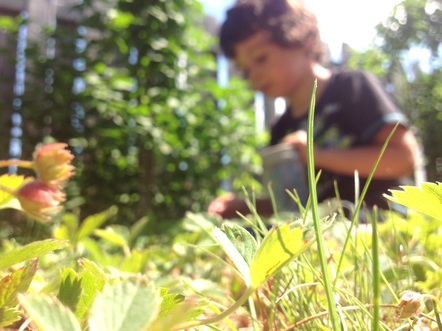 Photo courtesy of Marie-Eve Boudreault, marieeveboudreault.wordpress.com. Photo courtesy of Marie-Eve Boudreault, marieeveboudreault.wordpress.com.
Changing a behavior midway, whether for us or for our children, can be extremely challenging when we’re feeling triggered. So often, my answer to this question is to just do the best you can in the moment, ride out the situation as best you can, and plan on reflecting on it afterwards. THEN, take the time, once you’re calm and have a few minutes to yourself to reflect on it. (I do promise to give you some strategic tips at the end of the article.)
But you can use the experience as a way to grow as a parent, as a way to understand your children better, as a way to create a life that better meets everyone’s needs and sets a different course for your family for the future. If you do this regularly, not only will it dramatically improve your family life, but it can also lessen your tendency to beat yourself up when you fall short of your ideals, because you’ll know you’re addressing your ‘failings’ constructively. And speaking of beating yourself up, JUST DON’T DO IT! (For some support here, read my article The Secret Most Moms Don’t Talk About.) When you beat yourself up, you don’t have space to learn a different way, because you’re caught up in self-blame, judgment, feeling guilty and self-hatred. If you have the intention of becoming a better parent and are taking concrete actions to make it happen, you can’t help but keep growing as a parent! Beating yourself up will only interfere with your progress. One thing I want to share with you is my famous POTTY TRAINING analogy for growth and learning.
There are 3 steps to learning to use the toilet:
The reason I’m sharing this is that we usually think we’re “failing‟ when we’re in steps 1 or 2. But we’re NOT. Steps 1 and 2 are an integral part of the learning process. So the next time you catch yourself reacting to your children in a way you don’t like, acknowledge yourself for already being in step 2! Now let’s get back to the initial question of ‘how do I change my reaction midway when I’m triggered?’ Here are several suggestions of things you can do:
Talk about how sometimes when we’re upset we end up saying and doing things that we regret later, things that don’t help the situation, and that it’s good to have a plan to prevent that from happening. Talk about what your own strategy is, and maybe they’ll also want to come up with one of their own. For example your strategy could be to say 'I need a time-out otherwise I'm going to say or do something I'll regret.' And to then step away from the situation, maybe go to the bathroom, to another room, step outside for 5 minutes, or go make tea (or definitely coffee in my case!) I know this is not always possible to take a time-out with little ones, but see if you can come up with a strategy that would work for you and your family. It could be putting on music and dancing. Something to disengage from the situation and give space to what you're feeling. An example from my life: I experienced a pretty dramatic version of this, when I used to struggle with intense PMS feelings for about one full day a month, which were really activated by my little ones. It felt like I was possessed, as my reactions were so extreme. So I talked with my daughters about it, when it was NOT happening. I told them what happens to me, that I don’t mean anything I say nor the ways I react on those days, and that they really can’t believe a word that comes out of my mouth on those days. I also told them that I wanted to keep a distance from them on those days to protect them from me. As soon as my oldest got old enough to stay home alone with them, I would leave the house when those feelings would come on, knowing that everyone was better off if I spent 2 hours in the coffee shop instead of being home. By talking with our children about our experiences of being triggered, and finding proactive solutions to handle the situations when it happens, we get to teach our children an incredibly valuable life skill which will serve them in all their relationships and for the rest of their lives. For a thorough discussion of Clean Parenting™, the parenting approach I teach, request my FREE report, The Almost Magical Formula For Surprising Ease and Harmony in Your Family While Fully Honoring Your Children’s Spirits. It describes the four principles which when used together, truly lead to astounding ease and harmony in families. Did you get value from this article? Would you like to give back? If so I would be incredibly grateful if you could share this article with your friends. I would LOVE help spreading the word about my work to people who could be positively impacted by it! SUGGESTIONS: If you liked this article, you may also enjoy:
Did your parents ever tell you "I'm doing this for your own good"?
(I teach those 4 principles in depth in my Clean Parenting program and you can request my report which describes them here.) To maintain your connection with your child and nurture his sense of self, you need to make sure that in every interaction, he FEELS that you are on his team. (Or at least in as many interactions as possible, as I've yet to meet a parent who can do it 100% of the time.) This is so important that I've come to claim that if there's only one thing you can remember and focus on in your parenting, which will most support you in being a peaceful and effective parent and raising whole children, it is BEING ON THE SAME TEAM. So what does that look like? The best way I know to clearly convey what I mean by being on the same team is to give you an experience of it. Think about a boss, a relative, a teacher, an organization leader or any other person who has been in a position of authority over you, whom you felt was really on your team. This person respected you, cared about your experience, taught you what you needed to learn and gave you instructions in a respectful manner. If you messed up, he/she strove to understand what happened, and presented you with support or any additional information you needed. How did you feel in his/her presence? How did you respond to his/her feedback? How did you respond to his/her requests? How did you react when he/she spoke? Really take a minute to feel this… I mean it. Close your eyes. Picture that person, and take the time to connect with the feeling of being with them. How did it feel? Please post your answer in the comments below! This is the place we want to tap into in our parenting. Truly being on the same team is the foundation of a caring and respectful family life—to having children who want to please you, learn from you and listen to you.
Here's an example of how Joanne decided to approach a situation with her son Rowen, from a place of being on the same team:
"When Rowen was starting swim lessons this summer, it brought up many emotions from our failed attempt last summer. Last summer, the instructor put his head under water the first day. Rowen got water up his nose and it traumatized him. I was not able to get him back in that year. So, when lessons came this year, he was excited until it came time to go the first day. He suddenly froze and refused to go. Instead of insisting that he go and participate. I asked him if he was afraid because of last year. He said "yes" and we discussed it for a minute while he hugged me and cried. I told him that since we paid for it, we will at least go and watch so that he can see what they do. I promised that I would not make him go in the pool. He left with me but added, "I will NOT go in the pool" just to make sure I understood. I kind of knew he would want to after he saw the kids having fun. After we got there we settle down along the fence by the pool. Rowen started to cry. I said, "I know why you are crying. Because you really want to go in and have fun, but you are scared that your instructor will put your head under." He said "yes" and gave me a huge hug while crying. I promised him that if he went in, I would tell his instructor that under no circumstances was he to pressure him to put his head under. The lead instructor came over and I told her what was going on and she also agreed to relay the info to Rowen's instructor. She was really nice and Rowen liked her. After feeling confident that we were both on his team, he went in willingly. He was smiling from ear to ear as soon as he got in and didn't stop smiling the whole time. He had a ball all summer but he never did get his head under. We are still working on that. ;) "
Do you realize your child unfortunately may not feel you're on his team? Here are a few tips that can help you make the switch:
And here are 2 practical tips I came up with when I was working with a mom on getting her on the same team with her 5 year old son. They both worked like magic:
Now, take a moment to imagine what it would have felt like if your parents had interacted with you from a place of being on the same team. How different would your childhood have been? How different would your life be now? How differently would you feel about yourself? Do you want this for your children? I'm so incredibly grateful I was able to provide it for mine! It sure shows in how differently they feel about themselves than I do about myself. I encourage you to do whatever it takes so you can shift your parenting to fully being on the same team as your children. And if you can't get there on your own, please get support from a parenting coach who can help you. (You can email me at [email protected] for help in choosing the best program for you.) Lots of love, To read about all 4 core principles of Clean Parenting™, request my FREE report: The Almost Magical Formula for surprising EASE and HARMONY in your family while fully honoring your children’s spirits.
WANNA GIVE BACK? Did you get value from this article? If so I would be incredibly grateful if you could share this article with your friends on Facebook (below) or Pinterest. I would LOVE help spreading the word about my work to people who could be positively impacted by it! SUGGESTIONS: If you liked this article, you may also enjoy:
This is a guest blog article, by my friend Walker Powell.
my feelings. Or I can choose to sit down with him and play with his train set, but if I do it grumpily, silently blaming him for being so needy, then I am simply letting him take control of the situation. Is it any wonder, then, that so often in these cases he is unhappy even though I’m playing with him? The choice I’m making is not whether to do what my son wants or what I want. I can pay attention to him while I’m doing chores and I can equally shut him out entirely while ostensibly playing with him. The choice is both deeper and simpler than that. It’s the weighing of whose needs are more important in this specific situation. Does his need for connection outweigh my need for a clean house? Usually, there is a way to meet both needs. But there are times when he really needs me to lay down with him and nurse for a few minutes, or we need to drop what we’re doing and take a slow walk to the park. I can see this, and I can meet these needs, without losing the stance of leader, if it is my choice to willingly do this with him. I can choose, consciously and happily, to lie in bed and let him nurse for twenty minutes. A leader, I have found, does not need to be always physically leading in every situation. I don’t need to plan out every moment of our day so that I always have something I need do to. I can let him share in the routine, and make a day that works for both of us. It’s a matter of choosing to put his needs at a level with mine. The best part is, even if it may seem as though I am getting less of my own stuff done in a day, the truth is that I am far more in control of my day than I was before. I feel empowered to choose to meet my own needs, calmly and without guilt, or to choose to meet his, joyfully and knowing that I am still in charge of the situation. Hopefully, I am also teaching him to take responsibility of his own choices and emotions, and as he gets older, there will be more give and take in our relationship, more flexibility in meeting both of our needs at once. Walker Powell lives with her husband and two-year-old son in Colorado, where they enjoy home cooking, taking long walks, and trying to live a simple, balanced life. They believe in the Continuum Concept, Equally Shared Parenting, and living in harmony with the earth. Want help becoming a gentle and effective leader in your family? Integrating this is one of the core components of my Clean Parenting Program. This program is for you if you're ready to transform every aspect of your parenting so you can finally live out your parenting ideals of peaceful and effective parenting.
When Gaby was born, I plunged into a deep depression. It didn’t match the symptoms of postpartum depression, so I didn’t seek help for it. Partially because I didn’t really trust the ‘experts,’ having previously experienced a year of therapy which didn’t do anything for me, and partially because I felt like I should be able to pull myself out of it on my own. I did manage to finally pull myself out of it, after 16 months. For years I couldn’t figure out what that depression had been about. But I realized over time that what it was about was that ‘I’ wanted to feel the way my daughters did! There I had 3 live examples of beings living as though they mattered, with an intact sense of self, with a knowing that their needs would be met, feeling wholeheartedly loved. And there was a deeply damaged little Eliane in me screaming “What about me?!?” How was it that they got to live the way they did when I lived with such a deeply ingrained sense of something being intrinsically wrong with me, feeling that I was disgusting even? When I wasn't able to feel love, I walked around with my needs SO unmet, when I was SO longing for all they matter-of-factly had? And how could I, from my place of emptiness, now fully meet 3 humans needs, all by myself? At that moment, when Gaby was born, though I didn't know it at the time, started my own ongoing journey of healing.” This story really struck a chord in Dawn, a mom of 2 living in Germany. The day after our call she posted the following in our program’s wonderful Facebook group: “So...the call was fun! A totally new experience for me...very interesting... One thing that came up for me was triggered by something Eliane said...the whole 'what about me?' thing...Honestly, I feel such utter RESENTMENT sometimes towards Elijah...this is going to sound very childish but it needs to be said...how come he gets to have all his needs met when no one was there to meet mine? Why does he deserve to feel worthy and welcome from day 1 whilst I'm sitting here doing 'inner work' every single day just to make right 25 years of messed-upness? Why should he have someone to validate his feelings and for his rage and sadness to pass freely through him whilst being supported every step of the way by someone that loves him? Where are all the people to meet my needs? Who's making me feel worthy and welcome? Who's validating my ugly feelings and letting me know it's okay and that I am safe within those feelings? What about me??? I hate to say it, but... (it feels like) IT'S NOT FAIR!!! I guess I want what he has...I know self-love is crucial, that maybe I can almost mother myself back to feeling centered and worthy...but sometimes I'd really like for someone else to love me unconditionally too...to do the loving for me...to bask in love without having to work for it... Anyway, again feeling very grateful that I found this program and for all the wonderful people I'm sharing this journey with. Thank you. :-) “
Your post transcribed my own feelings and frustrations as accurately and clearly as if you’d pulled them directly from my mind (and the mind of every other young parent I know). During a recent conversation I had when feeling exceptionally weary, I described the experience of parenthood as "virtually everything relaxing, rejuvenating and pleasurable about your life becoming irretrievably scattered as your entire existence transitions into one entirely focused upon the preservation of a creature with inexhaustible demands, and only the most minimal, fleeting capacity for gratitude."
At the very least, we can take solace in the realization that so many of us share this experience—the burden of providing perpetual, continuous care while forgoing your own needs and desires. You give until you feel like you’re empty, and then keep giving. You have my gratitude for being courageous enough to share these personal (and somewhat painful) thoughts, and providing an avenue for people like me to gather strength and encouragement. Here is the one caveat/correction I’d contribute to the conversation: the need for validation—to be cared for, to be supported and encouraged and loved and appreciated by another human—is NOT childish. It is one of the most fundamental and basic human instincts; it is something we innately desire in each and every one of our relationships, and it is nothing to ashamed of. It’s true, in some sense, that the specific manifestation of our needs may be shaped by old wounds and unresolved childhood issues, but to “need”—to require help and care and encouragement—is universal to every individual of every age. This need is a basic one, but it is not childish. Sometimes, our self-perception becomes so warped (whether through notions of ability and achievement or through strictures of duty and obligation), we imagine those basic needs no longer apply to us. We confuse basic human desires with immaturity, as if somehow we’ve transcended the fundamental characteristics that make us human! Please believe me when I say that I empathize with every ounce of your frustration and resentment, your doubts and insecurities. But please don’t cling to that undeserved sense of shame. As parents, we have to wade through endless demands and emotional deprivation, but that doesn’t mean dismissing our sense of self, ignoring our own needs and desires. It just means that fulfilling those needs will be tougher—sometimes tougher than we’re prepared for. Thank you, again, for your honesty and authenticity.’ Johnny Snyder So once I got over being jealous of Haley for being married to such an amazing man (as most women were in the group!) here’s what I responded: “Okay, I'm finally ready to respond to this. One thing that I want to say, to all of you, is that what's being discussed here I also see as a wonderful opportunity for our healing. I've been doing inner work and coaching for 16 years now, and one of my big frustrations has been watching people settle for ways of living, relationships and situations that made them unhappy. And even when I would encourage them to do inner work to clear the way to them having what would deeply fulfill them, when I would tell them that they didn't need to suffer in this way, they still wouldn't find the motivation or commitment to do what it took to heal themselves. UNTIL IT STARTED AFFECTING THEIR CHILDREN! The beauty in this whole situation is that our children trigger our most wounded parts. Because of it we react inappropriately and hurt them to some degree. And THEN we often find the motivation to work on ourselves. What we weren't willing to do just for ourselves we're now willing to do for our children. And in the process of clearing what gets in our way of being the parent we want to be, of having a deeply happy and peaceful family, we heal ourselves. In this way, if we're open to it, our children are the catalysts to healing our own wounded child, so that we may also live from a place of inner freedom, peace and joy, a place of wholeness." Our jobs are incredibly tough because we’ve committed ourselves to breaking the generational patterns of pain and dysfunction. It’s SO hard yet so needed. And if you’re reading this chances are that you have what it takes to do it and make a massive difference in the world! Spiritual teacher Marianne Williamson said “Personal transformation can and does have global effects. As we go, so goes the world, for the world is us. The revolution that will save the world is ultimately a personal one.” This is the critical work we’re doing. And what Parenting For Wholeness is dedicated to. And now there’s another thing I want to address from Johnny’s post: Our needs DON’T have to go so unmet! There are resources for you. Parenting doesn’t have to be so hard. There are 3 things that are needed here, in my opinion. 1. To build the strong parenting foundational skills of getting on the same team with our children and stepping firmly and cleanly into the trusted leader role which they need to thrive and we need to have ease and order in our homes and lives, so that our needs don’t feel so unmet. 2. To do the inner work needed, which is highlighted in your reactions to your children or the places where you’re not able to put in practice the parenting skills and approaches you know. 3. To create for yourself the support you need for your parenting life to be manageable and smooth, which we go into in my programs, as well as identifying our stuff and beliefs which get in our way of being able to create that support in our lives. My two complementary programs are designed to provide you with the majority of the support you need to have ease in your parenting, create the support you need for yourself and your family and efficiently and effectively start your healing journey directly as it relates to your children and your parenting. If you want ease and harmony in your family, and want all the members of your family to live from a place of wholeness, check out my Parenting For Wholeness CLEAN PARENTING Program by clicking here. If you’re ready to dedicate 7 weeks to build your clean and effective parenting foundation and are willing to take an honest look at yourself, this program very well might be for you. Going through this program will not only significantly impact the quality of your family life and relationship with your children, but it will also qualify you to participate in my DEEP HEALING Program, which is all about dealing with our reactions with our children, healing ourselves, and meeting our own needs. Feel free to email me at [email protected] if you have any question, wonder if the program is the right fit for you, or to request a scholarship application if you have no way of coming up with the full tuition for it. SUGGESTIONS: If you liked this article, you may also enjoy:
When I'm out, I often see struggles happen between parents and children which are simply caused by the parent having an unrealistic expectation.
This makes me so sad for both of them!!! What I'm talking about here are struggles where if the expectations, the environment or the circumstances were changed, the conflict or difficulty for the parent would completely disappear. It makes me incredibly sad to witness those struggles, tears and fights which would never even show up in a different family simply because the parent's expectations are in alignment with what’s realistic for a child that age, of that temperament or in that situation. One thing that’s guided my parenting and has been so helpful to me has been to look at my children from an evolutionary perspective. What has been normal for most of humanity, but has completely changed in the last centuries (or even decade!) and now leads us to having completely unrealistic expectations of our children. Here are some examples:
And here are more situations where I often see parents struggle because they don't have a realistic expectation for their child:
Developing realistic expectations of our children can go a LONG way in preventing struggles in our families!
And similarly as with our children, a lot of the pain and stress that we experience as parents comes from the fact that we don’t have realistic expectations of OURSELVES. And because we’re caught up in what we think we should be doing, or how we think we should be, we don’t proactively address the real problem. Where in your parenting do you have unrealistic expectations of yourself? If you have a hard time seeing it, imagine that the situations with which you struggle are happening to a dear friend of yours, who’s a great parent. Seriously, picture someone you know and value. From that lens, can you spot some unrealistic expectations?
WANNA GIVE BACK? Did you get value from this article? If so I would be incredibly grateful if you could share this article with your friends on Facebook (below) or Pinterest. I would LOVE help spreading the word about my work to people who could be positively impacted by it! SUGGESTIONS: If you liked this article, you may also enjoy:
What if one simple shift could make a huge difference in your family life? AND make your life a whole lot easier?
Read or listen to the audio version.
I realized recently that there's an area where parents are working much harder than they need to. Where putting in less effort would greatly benefit their family! Isn't that a nice thought?!? This realization came last Sunday during a presentation I was giving on "The Essential Principles I've Adopted From NVC (Nonviolent Communication.)" One of the key NVC teachings* I've integrated in my life and teach parents is empathy. (I'll get to the simple tip later, once I've laid the foundation for it.) Learning to truly empathize with your children is one of the most powerful parenting tools you can develop, one of the 4 parenting pillars I consider essential to have ease and harmony in your family while raising whole and happy children. (Click here for a report that covers all 4 pillars of Clean Parenting™.) What IS empathy? Let's start with what it's not. Empathy is not:
Take a moment to ask yourself how you feel when someone interacts with you in any of those ways. Think of a time when you were upset and sit with each of the responses. Now let's move on to what it is. Empathy is:
Empathy is mostly a way of being, not something you do. It's a skill that can be cultivated and which will bring you benefits you may not even be aware of, not only in all your relationships but in your relationship with yourself and in the quality of your inner life. I experience it as a social meditation. When you empathize with your children you give them full permission to be who they are and to have the experience they're having. You support them in connecting with their experience and offer the space for them to process it organically. You support them in finding their own innate wisdom. You offer them a natural tool so that they don't carry their unprocessed experiences into the future. Empathy diffuses conflict and prevents resistance and rebellion. It supports children in becoming self connected, authentic, feeling worthy and being able to find their own solutions and process their experiences on their own. One note here is that it's absolutely okay if your children cry. In fact it often can happen if they feel true empathy from you. Tears are a powerful way in which experiences get processed. The deeper your children go into the emotion, the more processing is happening. All you have to do is stay with them, perhaps holding them, until the emotion through the tears has passed. If we engage with words, it's only for the purpose of allowing them to more deeply connect with their experience, so that they can organically move through it, through the innate wisdom of their being. There is a lot that can be said on communicating from a place of empathy, but for now I'll just offer one guideline. If you want to speak from a place of empathy, make your goal to have your words match their experience. You can use any words that will allow them to more fully connect with what they're experiencing. If you get an emphatic "YES!" in response to something you say, you'll know that it's what you're doing.
So are you still wondering what I was referring to in the title of this article?
Here it is! I noticed throughout my call on Sunday that some of the moms were intently trying to figure out how to communicate with their child, how to help them, what to do. I could feel their tension and the intellectual effort of trying to figure it out. And it was obvious what they needed to hear: You don't need to do or say ANYTHING!!! All you need to do is BE with your child. Relax, love, don't try to fix anything, just be. Can you feel that? Can you find that place? Close your eyes and find it. Feel it. Let it permeate you so that you can remember it and draw upon it when needed. It's SO easy! And feels good. It's connecting. Relaxing. Natural. And a beautiful gift to give others. You just need to unlearn your habit of needing to do something, let go of the belief that you help by doing. Last night, in the midst of writing this article, I had to stop for a weekly coaching call with one of the delightful moms in my group. At some point during our call her 6 year old daughter walked in, upset. Caroline picked her up lovingly and placed her in her lap. Her daughter was crying and all Caroline provided was complete allowance of her experience, love and compassion. At times she would still talk with me while snuggling her daughter. After just a few minutes, she directed her to go re-join her dad, which her daughter did easily. Caroline didn't overtly DO or say anything to make her daughter feel better. But from my vantage point I could feel the love, acceptance, compassion, peace and the relaxed energy in Caroline. I wish I had a video of it to share with you. It was sheer beauty and the exact attitude I know to be profoundly impactful on our children. *I am NOT a certified NVC teacher, though I have studied it extensively. I want to make it clear that what I teach is my interpretation and integration of NVC, NOT the pure NVC principles.
To read about all four of the core principles of Clean Parenting™, request my FREE report: The Almost Magical Formula for surprising EASE and HARMONY in your family while fully honoring your children’s spirits. When used together, those four principles truly lead to astounding ease and harmony in families (empathy is the fourth one.)
WANNA GIVE BACK? Did you get value from this article? If so I would be incredibly grateful if you could share this article with your friends on Facebook (below) or Pinterest. I would LOVE help spreading the word about my work to people who could be positively impacted by it!
SUGGESTIONS: If you liked this article, you'll likely also enjoy:
Read or listen to the audio
I've noticed a common and very sad thread in several conversations I've had recently.
These conversations were with mothers who are exceptionally dedicated to their children. Who are committed to honoring their children's spirits. Whose main concern is to not in any way interfere with their children's wholeness. Who value the quality of their connection and their every interaction with their child above anything else. Who succeed in the vast majority of the time in parenting in alignment with their extremely high values. Who based on what I believe to be best for children are in the top 1% of best moms I've ever met. I hear them say things like:
They're treating themselves in a way they'd never DREAM of treating their child!
If you do, I want to tell you that what you need to do, on the contrary, is pay MORE attention to your feelings. What are they telling you? What are the unmet needs that need to be addressed so that you can sustainably be the loving mom you aspire to be for you child? In order for you to have harmony in your family, everyone's needs have to be met, INCLUDING YOURS! If you don't take care of your needs, you'll end up being resentful, which will impact the quality of your relationship with your child. And you'll have a build up of unaddressed emotions which WILL blow up in often inappropriate and damaging ways. You are NOT doing your child a favor by meeting his needs at the expense of yours. You're teaching him that his needs matter and yours don't. And that in order for one person's needs to be met, another's need to be ignored. In order for your child to learn to successfully live socially, he needs to learn to look for win/win situations. And those can be found, the vast majority of the time, if we focus on identifying and meeting the underlying needs.
the consciousness at its core and the perspective it offers are in my opinion one of the most important one available to us in radically reducing emotional suffering AND improving all relationships.
I'll write more about the concept of needs vs wants, feelings and strategies in a future post, as I believe internalizing it is KEY in achieving harmony in your family. Now back to my most caring, conscious moms. There's another sad trend I've noticed and found myself talking a lot about recently. And it has to do with when they 'mess up' as a parent. I've been amazed and saddened at HOW MUCH they beat themselves up for what they do or don't do which is not in alignment with their parenting values. And at how FEARFUL they are that they are damaging their child! I had an absolutely incredible mom, someone I greatly admire, write the following to me this month: “I’m filled with such guilt, remorse, and fear that I've irreparably damaged my daughter, her true self and her innate worthiness and her future ability to have peace and joy.” "I have fear that because I didn't handle my stuff, she went from being whole and fully intact with all the strength, loveability, worthiness, fearlessness, etc. she had to now being permanently wounded. I’m afraid she’ll be like me, wounded and behaving in ways that she regrets through no fault of her own." Is any of THIS resonating with you? If it is and you're like the majority of my readers, you have done a fantastic job meeting your children's needs, even though a lot of yours were NOT met as an infant and child. It's very challenging to meet another's needs when we have an unresolved store of unmet ones. I REALLY want you to recognize how much you ARE doing that, how much more you are giving your children considering what you didn't get! Parenting in the loving, considerate and respectful way that you are is an incredible gift you are giving your children. And you are doing it in a society (and maybe even community and family!) which largely doesn't support and understand what you're doing, and may even be critical of it! You REALLY need to HONOR YOURSELF for what you're doing for your children. And as you focus more on meeting your needs and healing the residues from your childhood, you'll find that you'll organically parent more in alignment with your values. Another thing I've found myself sharing numerous times, which seems to really hit home with those moms, is that our children are a lot more resilient than we are. Because of the way they've been lovingly parented from birth, they don't have the same woundedness that we have! As a result of it, they don't make the same conclusions out of our actions as we would have as children. As my daughters got older, I got to have insight into this in my conversations with them.
What freedom!
So think of how this is playing out in your family. What is it that you're most afraid of, in terms of messing up your child, or when you fall short of your ideals? Once you've identified that, look at your family life objectively, as if it was someone else's. And ask yourself if it's even possible for your child to experience your actions in the way you fear, to make the same conclusions about himself as you would have as a child. (I'd LOVE to hear your answers! Please post them below if you're willing to share.) My advice to these incredibly caring moms I've been talking to, who had contacted me to figure out how to be better moms, has been the following: "You already are an AMAZING mom to your child! What you really need to do more than anything is to become a BETTER MOM TO YOURSELF." "And for me to remind you of what an AMAZING job you're doing!!!" And I REALLY want you to hear it as well if you've recognized yourself in what I've described in this article. With much love, Want my support in getting to a place where yours and your children's needs are fully met? Then join me in my next Clean Parenting™ group!
SUGGESTIONS: If you liked this article, you may also enjoy:
What most touched them was when I talked about the urge I had to inflict pain on my oldest daughter when she was little. How even though I adored her, only wanted the best for her and absolutely did not believe in any kind of punishment I still at times was overtaken by the urge to hurt her. Punish her. Make her pay for what she was making me experience. I would find myself knowingly squeezing her arm too hard, not seemingly punishing but very conscious that I was giving in to my urge to inflict pain, that in that moment it was stronger than my love, any positive feelings, beliefs, or self-control. I've had several moms, just in the past week, crying on the phone with me, feeling shame, distress and even horror that they would have similar, or other negative reactions towards their beloved children. Feeling that something is really wrong with them. And often times thinking that they are the only ones to have negative and damaging urges towards their children. That they are uniquely flawed. It broke my heart to hear how much pain they’re in relative to it, and how much some beat themselves up for it. I really want to make it known how common those urges are, particularly the more unmet our own needs were as infants and young children. I can't even tell you how often this comes up in group calls I have as part of my programs. It starts with one mom quietly and shamefully admitting to something she's done or felt. I then always ask if anyone else has ever done or felt the same thing. And invariably, every single mom, including me, raises her hand! This is one reason I make sure that every one of my programs includes a group component. I want all my moms to have a deep, connected and safe community so they can share and be heard in the truth of their mothering experience, and hear of others who are going through very similar experiences. There is tremendous value in hearing of other moms’ negative impulses and feelings towards their children, hearing about others’ reality of being a mom, as well as being able to speak of yours, and to be heard and supported in it. I strongly encourage you to find a safe way to create this for yourself. We have to stop hiding from other moms who'd so benefit from our transparency. For many parents, the relationship with their children brings up their deepest unresolved issues, the part of them that they may have managed to hide in the rest of their lives. Those unresolved issues (or OUR CRAP as many of my clients call it) are what causes us to react to our children in ways that we’d never imagine we would. In ways that people who know us might not even believe that we do. We often don’t even have a clear understanding of where it comes from. I now consider that doing our own deep healing work is the most effective way to become the parent we know in our hearts that we can be. And it’s the majority of the work that I do with clients. But I didn't always know that. As I said on my call "3 Unfortunate Mistakes Conscious Parents Make That Prevent Them from Having Truly Happy Children and Harmony in Their Family", my poor Cassandra is the child with whom I worked through my control and anger issues. And it was quite a journey. I even hit her, once, when she was 7. Looking back, I honestly don’t know how I did resolve my control issues with her. I know that there was a lot of behavior modification of myself, of muscling against my reactions, of convincing myself to parent lovingly and positively, of talking with like-minded friends and reading tons to gradually re-program myself. But one thing I do vividly remember is when I hit Cassandra. Something about that incident forced me to seriously take notice of what was going on in me and commit to addressing it so that things wouldn't continue to deteriorate between us. Somehow just that seemed to finally completely shift things between us. And we enjoyed a wonderful relationship after that. AFTER 7 ½ YEARS OF STRUGGLE!!! Having since then done tons of emotional, healing and spiritual work, I now not only can understand but can also quickly move through those kinds of reactions, feelings and impulses. If you also struggle with reactions to your children which you dislike, please know that it’s normal. And that there’s a way out if you want it. I now know that by doing your own deep healing work, you could have in 3 months what took me 7 years to achieve. If you realize that you need to do some healing work, let's chat! My passion is helping moms heal their wounds and dissolve their triggers so they can be the parent they want to be to their children, and I've developed very effective ways to do so. EMAIL ME AT [email protected] to schedule a free 30 minute chat where we'll come up with a plan so you can become the mom you want to be to your children. UPDATE, July 2017: I've learned a ton since first writing this article 3 1/2 years ago and talking and working closely with hundreds of parents. I now know that it's not necessary to do years, or even months of one-on-one healing work to clear these oh so disturbing yet common impulses. For most parents, these impulses disappear as we work through my Clean Parenting™ Program. I can't say specifically what causes them to disappear, but here's what I do know happens as moms integrate the principles taught in the program which are factors in that shift: (I recommend you read the many many testimonials on the program page to give you a sense of what parents experience and might be possible for you as well.)
You need to be living it, day to day, moment to moment. And this is what my program helps you do, if you're not able to get there on your own. It is NOT an easy process, because it's really intensive and deep work and requires an extremely high level of commitment and honesty, but most participants are astonished at the magnitude of shifts, clarity, and improvement in their lives they experience in just 2 months. And though the focus of the program is not on healing parents' issues, I'm amazed at the degree of healing that many parents say they experienced through this wonderful journey. For parents who still have unresolved issues that they want to heal once the program ends, I do offer additional programs and one-on-one healing sessions to support them in their ongoing journey. If any of this speaks to you and you'd like my help in becoming the parent you so long to be to your children, while also learning to value and care for yourself, email me at [email protected] to schedule a free 30 minute chat where we'll come up with a plan so you can become the mom you want to be to your children. Did you get value from this article? Would you like to give back? If so I would be incredibly grateful if you could share this article on your Facebook wall with a comment about one thing you found valuable in it. Or email it to a friend. I would LOVE help spreading the word about my work to people who could be positively impacted by it! SUGGESTIONS: If you liked this article, you may also enjoy: By Eliane Sainte-Marie, founder of Parenting For Wholeness Did Clair get it right when Rudy broke Cliff's juicer? Check out this video clip and see what you think. I'll then break down what she did for you. And that's how it's done, ladies and gentlemen!!! Kidding aside, this clip beautifully illustrates one of the 4 core principles of my work: being a clear benevolent leader with our children. Giving them the guidance they need to learn to function in our world, in a completely respectful, attuned and non-manipulative way. I was thrilled to discover this wonderful example in The Cosby Show's The Juicer (season 2, episode 2) because this concept is challenging to describe with words. It needs to be experienced. (For a full discussion of this principle, read my article: The Key to Well-Behaved Children Who Listen to You, While Fully Respecting Them.) I consider developing this clear benevolent leadership stance in our families one of the most important things we can do as parents. It's particularly important when our children are young. I credit having mastered it as the reason I had incredible ease and harmony in my own family as my three daughters were growing up. So now let's look at what's happening in the clip which is so on point:
I hope this video clip and discussion have given you a clearer sense of what being a leader is, and feels, and looks like. I'd love to hear your thoughts! For an in depth discussion of the four key elements of Clean Parenting, request my report: THE ALMOST MAGICAL FORMULA For Surprising Ease and Harmony in Your Family While Fully Honoring Your Children’s Spirits. Want help integrating this approach so you can consistently parent like Clair? Check out my Clean Parenting™ Program!
SUGGESTIONS ~ If you liked this article, you may also enjoy:
I was honored to be asked to submit a blog post on Love Parenting’s beautiful website. I love Sam’s message and am thrilled at all the support and information made available to parents through her work. We are completely aligned in our approach and philosophy to parenting, but my children are a lot older than hers (15, 18 and 21.) So I thought you might enjoy reading about the results of this parenting approach in one family, to get an idea of what you might have to look forward to if you also commit yourself to this approach. It can be very challenging to parent in a way that’s different from the mainstream, as I’m guessing you’re doing if you’re reading this article. It’s also challenging, sometimes overwhelming, to spend a large part of each day focused on meeting little ones’ needs. I hope my experience can give you some inspiration to keep doing it, as well as some reassurance that it’s worth it beyond what you can even imagine! My 3 daughters and I are a living proof of it. When my first daughter was born, I went on a quest to find a parenting approach that would insure that she would grow up feeling whole, loved, and knowing that she was intrinsically good. It just wasn’t not an option for me to have her experience even a smidgen of what I lived and still struggled to heal from: growing up feeling unloved and believing I was deeply flawed. For the first 5 years of my parenting journey, all my attention and energy went into finding and integrating into my family an approach that felt 100% right. Click here for the rest of the article where I share some of the core things I did differently than most parents in our culture, and some of the most striking differences I experience(d) in my daughters as a result of it. And if you'd love to have in your family what I have in mine, check out my Clean Parenting program. In it I'll take you step-by-step through every element of your parenting so that you can also have ease and harmony in your family, while making sure that your children grow up whole.
As a result of this new focus, I've been talking with and working with a lot more parents. And I’m realizing that there’s something that I've mastered and am able to share and help parents with which most people are either not familiar with or struggle to put into practice. Something which I believe might very well be THE key in having TRULY HAPPY CHILDREN AND HARMONY IN FAMILIES. And the absence of which is the root problem of the majority of questions that mothers ask me. It’s about positioning ourselves as being in charge with our children, but in a completely respectful, attuned and non-manipulative way. What Jean Liedloff in The Continuum Concept talked about in terms of being a leader with our children. (Click here for a description of The Continuum Concept, and here for a discussion on being a leader.) What we almost exclusively see in our society is either authoritarian or child centered and permissive parenting. Most people unfortunately aren't even aware that there’s another option. So they waver between the two approaches. They spend a lot of time in the permissive and child centered realm, out of a deep desire to: … not harm their children … not do to their children what was done to them … honor their wholeness and their spirits But then chaos sometimes (or often!) reigns in their families. Out of exasperation and powerlessness, parents end up shouting and punishing (or using time-outs, removal of privileges, or other positive sounding forms of punishment.) They feel damned if they do and damned if they don’t. That they have to choose between (possibly) well-behaved children and order in their home OR being nurturing. They don’t know that… THERE IS A THIRD OPTION!!! I've yet to come up with words which succinctly and accurately represent what that option is (I would LOVE some suggestions if you have some) but here’s what it is:
our unmet needs to a way that’s in harmony with human nature.
We are biologically wired to parent that way. If we weren’t and children had always been either running wild or rebelling against authority, mankind would not have survived. Therefore all that’s needed is to clear what’s in our way of organically parenting instinctually, lovingly and effectively. I’ll be writing about this topic in my next blog post, but right now I want to leave you with some hope around this. Though the deep healing work of our own unmet needs can take time, I’ve found that unhooking it from our parenting can be remarkably fast. Here’s an experience I had with a mom recently, which illustrates it: She was experiencing an ongoing struggle with her son which was deeply affecting her family life. During a session, we identified how that struggle was connected to what she experienced as a child. I lead her to connect with it emotionally, and we did some healing work on it. Though that session did not complete the healing of the childhood experience (this will be an ongoing process,) it did disconnect it from how she was playing it out with her son. And the intense struggles that she was having with him DID disappear overnight and have remained cleared for a few months now. Do you resonate with this article? Then I encourage you to strongly consider participating in my Clean Parenting™ Program! A large focus of it is on clarifying, clearing your obstacles to and building your leadership attitude so that you can also have ease in your family! You can read of parents' experience of it on the program page. Click here for information on it and to register! Did you get value from this article? Would you like to give back? If so I would be incredibly grateful if you could share this article on your Facebook wall with a comment about one thing you found valuable in it. Or email it to a friend. I would LOVE help spreading the word about my work to people who could be positively impacted by it! SUGGESTIONS: If you liked this article, you may also enjoy:
I am blessed to be experiencing with my 3 daughters, ages 15, 18 and 21, a lot of the promises that Jean Liedloff made in her book The Continuum Concept. Blessed to have (mostly!) raised them in a way that is in harmony with their essential nature. Blessed to know that as a result of my parenting there are three young women in this world who are free from most of the pain that the majority of us walk around with. I wrote about this last week with the intention to inspire parents who want it to commit themselves to applying The Continuum Concept in their lives.
If you also have a sense that TCC speaks the truth, yet struggle with fully trusting it and committing yourself to doing whatever it takes to implement it in your family, or just want support in it, here are a few things that have supported me in the early part of my parenting journey, which may also help you, as well as new ones which weren't available when my children were young.
Journal / Meditate / Focus on your spiritual path
It’s easy to get focused on and consumed by the details and struggles of our daily life. And then lose tracks of our ideals, of our beliefs, and of the bigger picture. What keeps you connected to those? And connected to your core self? Is there a routine that you could create in your life that would support you? Create a local tribe When my daughters we little, I had 2 groups of specifically Continuum Concept families with whom I met regularly (in addition to several other groups who were also supportive, though not with a CC focus.) One was a monthly Continuum Concept discussion group, consisting of mothers (and of course loads of children!) with whom I’d connected through various groups: La Leche League, Mothering Magazine and homeschooling groups. Having shared the book with everyone I thought might be interested in it, I was able to pool a decent group of people who were happy to come to my house once a month. We’d all brainstorm about how to apply TCC to various situations we were experiencing in our families, as well as social ones which would often play out right in the midst of the meeting! This is in large part how I figured out how to apply TCC in my family. I also got to enjoy a weekly Continuum day which my friend Janet created. Four families would meet every Friday. One of us would be responsible for planning that night’s dinner and purchasing the ingredients for it. We would meet in the morning, somehow scramble a lunch for all of us (there was originally 9 children and eventually 12!) and together we would prepare that night’s dinner which we would split into 4 portions to take back to our individual homes and have ready to serve that night. We originally planned on also cleaning the house we were at, but quickly decided that we’d much rather take advantage of the social opportunity to be all together rather than spending a few hours in separate rooms and ending up with a clean house. Those were wonderful days where the moms had their social needs met, were engaged in adult activities, and the children were completely happy being socially engaged with children of all ages. How can you create a local support? If you have a desire for it, brainstorm various local and online sources from which you could draw like-minded parents: LLL, meetups, attachment parenting, natural living, homeschooling, natural food coops, etc. And hold on the saying “If at first you don’t succeed, try, try again.” It may take time, effort and creativity to create your tribe, but I have found it to be well worth the effort. Participate in online support You are blessed nowadays with something I didn't have when I was first raising my children, which is access to anyone IN THE WORLD! I was excited to discover recently that there are a few CC Facebook groups, a Continuum Concept list serv, as well as a few Continuum Concept Meetup groups. There are also undoubtedly a host of other groups you could join which even if not specifically CC would offer you support. Though connecting with people online may not be as rewarding as meeting in person, it IS a great way to connect with like-minded people. Is there a way you can use your computer to create support for yourself? What would be supportive for you and fit your personality and preferences? And if there isn't a group that specifically resonates with you, could you create one? (I’m planning on soon creating a Facebook page connected to my website, which will be dedicated to supporting you in parenting according to CC principles, and where you’ll be able to ask me questions. Make sure that you’re on any of my email lists if you want to be notified once it’s activated.) Create phone / Skype support My absolute favorite new(ish) technology is Skype! I love the feeling of connection that I get when talking on Skype, being able to actually see the person I’m talking to. It’s not only been wonderful to connect with my oldest daughter who lives 1100 miles away, but has allowed me to create new friendships which are deeply supportive of my current path. For example, my current deepest interest and resonance is in the nonduality approach to spirituality. After doing some individual and group sessions with a teacher, I was invited into her Facebook group. Through this group I have connected with a woman from California as well as a young man from Brazil. Both of those connections are supporting me in deepening my practice and embodiment of a work towards which I am currently deeply guided and is adding tremendous value to my life. Can you find group calls in which you can participate which would offer the type support that would be most beneficial to you? Do you resonate with someone’s perspective and experience in some online group with whom you could buddy up and talk on a regular basis? Did you meet someone with whom you connected but doesn't live in your area, with whom you could still develop a mutually supportive relationship over Skype? Again, I’m looking into creating this type of ongoing live support for parents who would like it, so stay tuned for info on this. Meet with parents who have done it A significant event in our parenting journey was when my husband and I got to spend time with a wonderful Continuum Concept family living in Vermont, who at that time had 4 teenage daughters. The sense of peace, ease and harmony that we experienced in that family was unlike anything we’d ever seen before and has stayed with me to this day. I vividly remember us walking out of that house 17 years ago, and saying to each other “This is who we want to be when our children grow up.” I wish I remembered the name of that family so that I could let them know what an impact they had on our family. It’s one thing to hear about the peace in the Yequana tribe, but to actually get to be with a Western family like yours who has lived in the Continuum way, to get to EXPERIENCE it, is worth endless numbers of books. It can ground in your bones what is possible. Parents of older children can also offer a perspective that is inaccessible to us while we’re in the throes of daily ongoing situations with little ones. Invest in professional support If you have a sense that you’re off track and unable to easily make the internal shift to parenting from a Continuum perspective on your own, hiring a Continuum Concept coach (or another parenting expert that you deeply resonate with) might be one of the best investments you could ever make for your family. Someone who embodies the Continuum principles (whether or not they call themselves Continuum,) who’s parented from that perspective and is skilled in supporting parents in making the shift to that approach. The benefits of more deeply embodying the Continuum principles in the context of your family will benefit you, your spouse and your children for the rest of your lives, as well as generations to come. And hiring a professional very well might be the most direct path to make that happen. (See my Home page for info on scheduling a free session if you'd like to explore the possibility of working with me.) I've met a few parents who had easy access to naturally parenting from a harmonious, connected and effective place. But for the vast majority of us, it takes a lot of effort and time to unlearn and undo all the programming that’s in us. To access the clarity of what’s true for us. To learn to live and parent from that place. I've found that creating both inner and outer support is a key in achieve that transformation. Do you want support in applying a Continuum Concept based approach in your family, with a tribe of committed parents? Check out my Parenting For Wholeness CLEAN PARENTING™ Program, and lots of testimonials of the impact it's had on TCC families! SUGGESTIONS: If you liked this article, you may also enjoy:
I promised to write more on this topic this week, so here it is. :-) If I had to pick only one thing to convey and be able to completely convince Continuum Concept parents of, it would be that IT DOES WORK! And I’d like to then somehow be able to inject you with the unshakable determination to find a way to implement its approach in your family. Did you really get this? I’ll say it again because I really want you to hear it: It does work! And It's worth doing whatever it takes to implement it in your family! You and your children will experience its rewards for the rest of your lives! I truly believe that the key to the incredible success that I've experienced in my family, with each of my three daughters, stems from the fact that I absolutely refused to accept what was considered ‘normal.’ I steadfastly held on to the ideals of which Jean convinced me. I didn't stop my search for an approach and attitude that felt completely right in every cell of my body and could inform every aspect of my parenting until I found it. (If you haven't read The Continuum Concept, click here for a description of one of the two books which completely changed my life.) Because the approach I pursued was dramatically different from what my family members and others around me had previously been exposed to, I was called many names over the years: idealistic, unrealistic, weird, an extremist, a zealot. And though some of them could be, they were rarely meant in the positive sense. I’m guessing you may have heard them as well…? But I was blessed to somehow have an inner knowing which kept me on track, and to be supported by outside conditions which kept me focused in my quest. I will share next week what I did to create and cultivate those conditions, as well as other ideas I have to also support YOU in implementing The Continuum Concept in YOUR family. MAJOR DISCLAIMER HERE!!! I'm not saying that I was a perfect mother. Far from it. In fact, one of the reasons I so value The Continuum Concept is the results it’s yielded with my daughters IN SPITE of how often I fell short of my ideals as a parent. In spite of (and I’m taking a more than slightly uncomfortable stretch in the vulnerability department here) … how emotionally messed up I can be … depressions I've experienced throughout the years … divorce and subsequent failed relationships … all the times and ways in which I was emotionally absent to my daughters In fact it feels a little strange to find myself in a parenting expert role, considering some of the things I know I've done. Yet when I look at my daughters, I am amazed and moved to tears at what I allowed to happen through embodying this incredibly loving and effective way of parenting. As my mom has always said about my kids, especially to those who criticized my parenting approach “You can’t argue with success!” SECOND DISCLAIMER: My daughters are NOT perfect! I’m reluctant to give much detail here, as I want to respect them and honor their privacy. But there are definitely times when you could see evidence that they are not perfect. And there are traits in some of them with which I sometimes struggle and wish were different. Though it’s not the topic of this blog post, I’ll say a little more about this subject before moving on. I sometimes think those traits might come from the places where they didn't get all their needs met at an early age. But they could also just be how they are. There are two things I want to share about this which I’ll expand upon in future posts: - I don’t feel like I have any right to judge how my daughters should and shouldn't be. An unexpected outcome of my intense personal and spiritual growth focus, as well as of the decades piling on, has been the realization of how little I can actually know. Whereas I used to be very cocky and sure of my opinions even just a few years ago. This may seem contradictory to my claim that TCC works, but I still feel they are both true. And… - It’s completely useless to focus on the past, EXCEPT for dealing with the ways in which it’s still playing out in our lives now. I’ll be expanding A LOT MORE on this one in the future. THRID DISCLAIMER: There wasn’t ALWAYS complete harmony in my house, nor in my daughters’ relationships together. So given all of that, what’s making me say that IT DOES WORK? I could write a whole book chapter on what I've experienced (and continue to) and see in my daughters which I attribute to my application of The Continuum Concept, but I’ll only highlight a few significant ones here: How well behaved they were as young children Though I absolutely REFUSED to use the word obedience up until a few weeks ago, I now recognize that it’s exactly what they were. I could easily take my three little ones anywhere, whether to a restaurant, a non-childproofed home or travel alone with them. They always knew to check with my husband or I to have guidance as to what was appropriate on not in new situations, from a much younger age than child development books might suggest. We were therefore free to focus on what was needed and what we were interested in instead of having to supervise our children. It made our life, though very busy, very easy! The harmony in my house Except for occasional and easily resolved conflicts, life in my house has always been extremely pleasant. I've had house guests comment on how peaceful my home was, which seemed contradictory because it was filled with three spirited, active, loud and sometimes rambunctious children. But what was absent was an adversarial attitude, and any hint of trying to control each other. I have a friend who claims that I've ruined all other children for him, because he expects them all to be like mine. Having met my parenting goals When my first daughter was about two, my husband and I created a parenting missions statement. We dug deep and determined our core goals for our children. I pulled it out a few years ago and was both impressed by what we’d stated as it still rang completely true more than ten years later, and a little shocked and awed to see how COMPLETELY they were met! (Incidentally, because of the power of this process in our family, I've designed a Creating Your Parenting Mission Statement Workshop which I’ll be offering soon. Make sure that you're on one of my email list if you want to receive information on it once it's scheduled.) Part of why this is so significant to me is that those qualities are often elusive in myself and the members of my family of origin, yet I was able to cultivate them in my daughters, thanks to a completely different parenting approach. Here’s what I see that my daughters have in spades, and which I’d love for all children (and eventually all adults) to have: an unshakable sense of self, self-confidence, inner motivation, self-sufficiency and the ability to find their own happiness in the world. Being done parenting early on I truly feel that I was done parenting, in the traditional sense, somewhere between the ages of 12 and 14. By that point they made all of their own decisions, and I would only offer my opinion and experience. Because I’d encouraged them to do for themselves what they could and allowed them to make their own decisions from a very early age, they were very mature and competent in navigating their lives. I believe they would have been able to live on their own by age 14 and even been able to be responsible and caring mothers. But I haven’t had to test that theory. :-) Their success in school Though I also attribute their success in school to their genes (traditional schooling tends to be easy in my family) and to their being unschooled for many years, my approach to their education was also informed by the Continuum Concept. They each chose to go to public school at ages 9 and 10 and experienced no pressure from their father nor I to have high grades. Yet they all excelled of their own volition. They took complete charge of their education as I never expected them to do homework nor attend school. And I can’t help but share a funny story here: My daughter Gaby used to skip LOTS of days of school. One day, I received in the mail two letters from her school: one congratulated her on making the dean’s list for her academic excellence and the other stated that her high rate of 'truancy' might lead to academic failure. (June 2014 update: Audrey, 18, just graduated high school as valedictorian and will be attending NYU, one of the most prestigious schools in the US, and Cassandra, 21, will be graduating from college this summer in 3 years instead of the usual 4, with honors.) If you know in your bones that the Continuum Concept approach to parenting is the way to go, I urge you to do what it takes to align yourself with it, so that you can also experience in your family what I have in mine: ease, joy, harmony, connection, absence of worry and the knowing that your children are fully equipped to find their happiness in the world. I will share with you next week what I did to support myself in implementing this approach in my family, as well as other ideas I have that could help you do it as well. For many more Continuum Concept resources, click here. Though my programs don't specifically cater to Continuum Concept parents, the basis of everything I teach is grounded in the principles from the book. And for practical Continuum Concept support, request my FREE report, 'The Almost Magical Formula For Surprising EASE and HARMONY In Your Family, While Fully Honoring Your Children's SPIRIT.' It describes the four essential elements (the first three being based on The Continuum Concept) which when used together create almost magical ease and harmony in families. SUGGESTIONS: If you liked this article, you'll also enjoy:
BELIEVING THAT CHILDREN WANT TO DO THE RIGHT THING In The Continuum Concept, we’ve read and I’m assuming resonated with the idea that our children are innately social, that they want to do the right thing relative to others, and that in fact human kind would not have survived otherwise. Yet how do we translate this into our little family, in our Western culture? (If you haven't read The Continuum Concept, click here for a description of one of the two books which changed my life.) First of all, I want to admit that IT’S HARD! As non-Yequana parents, we’ve bathed from birth in the beliefs and been surrounded by behaviors that implicitly or explicitly state that our impulses are not good and that we need to be manipulated in doing the right thing. This belief unfortunately informs the majority of our reactions and interactions, even though we may intellectually believe what Jean stated in the book. But even if we act ‘the appropriate way’ with our children, our underlying belief is still felt. Think back to a time when you were feeling resentful toward your spouse or your friend, but were trying to be nice and loving anyway. Can you feel how much that resentment was still subtly but very clearly present in the interaction? Can you see how your deeply ingrained belief that children don’t want to do what you want them to might still imbue every interaction that you have with them, even if you try to bypass it? Until our belief in our children’s social nature is restored to what’s true, we don’t have access to interactions with them that tap into their beautiful innate nature, and lead to the ease and harmony in our families which we long for. And which Jean has promised us is possible. That erroneous belief NEEDS to be undone in order for us to be able to parent in alignment with our children’s natural social nature! Once you truly know that your child’s nature is good, it will be obvious that any misbehavior comes from a place of something being ‘off.’ It could be because: You are being too child-centered OR You are not grounded in yourself, not clear and not being the parent in charge. Both of those cause a SHAKINESS in children which will cause them to ‘misbehave’ because something feels ‘off’ in their world. Aligning yourself in this area will give them the security they need to be able to relax and be free of that discomfort. Both of these concepts are deserving of their own discussions. I’ll address them in a future post. Some of their physical needs are not met in the moment, such as they are tired or hungry. In that case what needs to be addressed is their NEED, not their behavior. You can say something like “Wow, for you to be acting like this, something’s going on. I bet it’s because you’re hungry (or tired.) Let’s go get you some food (or a nap.)” You don’t want to condone the behavior, so may need to address that what was done wasn’t appropriate. But your MAIN focus is on the ROOT CAUSE of their behavior and TAKING ACTION to meet that need. By doing this, you not only restore harmony in your family but … you are showing them the link between their need not being met and their behavior, which increases their self-awareness. and … you are teaching them to take care of themselves as a way to prevent acting in non-harmonious ways. They are acting out an emotional issue In the case of the new friend I mentioned earlier, I believe the cause of her son wanting to hurt his younger brother is that he has UNRESOLVED FEELINGS around the birth and/or invasion of his space by his brother. If you are clear that you child is innately good and social, your approach to him pushing his brother would … not be to ask “WHY did you DO this???”, with an upset and judgmental tone of voice … but instead to ask “Why did you do this?” from a loving, concerned and genuinely curious place. What he would hear, that would be unsaid but clearly conveyed in your question is ‘I love you, I know that you are kind and caring and that this isn’t a normal behavior, I care about you and want to make sure that your needs are met, I’m here for you.’ It’s of crucial importance for your children to be able to express what they are experiencing, without EVER feeling that something’s wrong with them or their feelings. So if what is indeed motivating my friend’s son’s behavior is distress over his brother coming into his life, my approach would be to encourage him to express all of his feelings about it. To voice them and cry if that’s what’s coming up, until he’s COMPLETELY done expressing it all. My only job as a loving parent would be to reflect to him what he’d say to me, or take guesses at what he might be feeling based on my knowledge of him. I wouldn’t say ANYTHING other than reflecting and asking him questions about what he’s feeling. No EXPLANATION, no RATIONALIZING, no DENYING of what he’s saying based on another contradictory thing he’s said before, no JUSTIFICATION of why you had another child or why that child is doing what he is, no POINTING OUT the benefits to him of having a sibling and his prior RELENTLESS REQUESTS for him to have one before he was born. I think you may be getting my point…? The absolute BEST THING that we can do as parents (and indeed as friends, partners, etc) is to hold the space for our children to express and feel all that’s present in them, to encourage them to keep feeling it all, and to generally SHUT UP. Humans are intrinsically good and whenever we act out it comes from a place of hurt. I’m very clear that the meanest people in the world are also the most wounded ones. Healing those emotional wounds is a lot simpler than what most of us think, thought it does HAVE to be done for our behaviors to arise again from our naturally loving nature. What’s needed is for the unresolved emotion to be accessed and experienced fully. It’s then released so that we again have access to living in harmony with our true nature. This is of course true for ourselves as well as for our children. In the case of my friend’s son, it’s very possible that once he’s guided to and allowed to fully express his emotions around the birth of his brother, that his behavior toward him would INSTANTANEOUSLY change. I'd be really curious to hear of her experience if she puts this into practice... P.S.: Click here for a post which includes a video of Clair Huxtable (from The Cosby Show) embodying what's described here. Does my perspective speak to you? Check out my Parenting For Wholeness CLEAN PARENTING program, designed to get you to a place of ease and harmony with your children in just a few weeks, while fully honoring their spirits. Click here for information and testimonials. Did you get value from this article? Would you like to give back? If so I would be incredibly grateful if you could share this article on your Facebook wall and in your mama groups with a comment about one thing you found valuable in it. I would LOVE help spreading the word about my work to people who could be positively impacted by it! SUGGESTIONS: If you liked this article, you may also enjoy:
And for Continuum Concept support, click here for lots of resources. |
PARENTING FOR WHOLENESS
HOME BLOG PROGRAMS CLEAN PARENTING™ PROGRAM QUICK START PROGRAM CONTINUUM CONCEPT WHAT IS CLEAN PARENTING™? © 2021 PARENTING FOR WHOLENESS |
|

